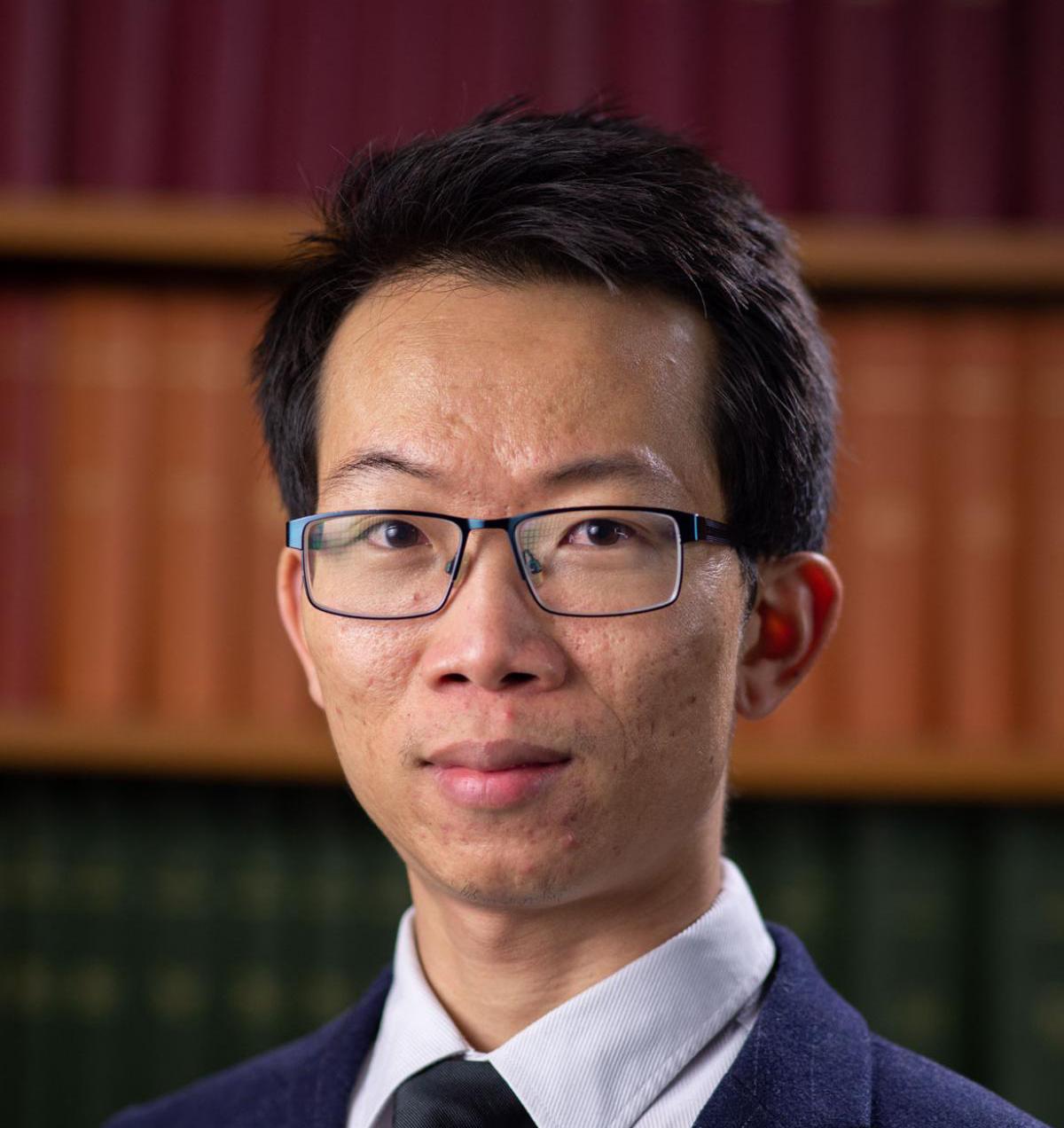
Dr. Shenghong He, winner of the Director’s Award for Public Engagement 2024.
Congratulations to Unit postdoctoral researcher Dr. Shenghong He on winning the Director’s Award for Public Engagement for 2024.
The Award recognises and celebrates the exemplary contributions of individuals or a small collective to the Unit’s extensive Outreach programme. The Award is given annually (this being the ninth occasion), on the basis of nominations made by Unit members.
Shenghong’s Award was announced by Unit Director Professor Peter Magill at a special ceremony held at the Unit’s Science Day last week.
Professor Magill commented “It gives us all great pleasure to reward Shenghong’s sterling contributions in this way. Shenghong has consistently demonstrated exceptional personal commitment to outreach. He developed a bespoke Brain-Computer Interface demonstration that has proven to be a fantastic tool for engaging diverse stakeholders, from school children to patient and carer groups. He plays a key role in organising engagement activities across the Unit, including our 2024 Open Day. He was one of the stars of the Unit’s research showcase video, The Symphony of the Brain, and he also helps curate the Unit’s social media content. A brilliant effort all around!”
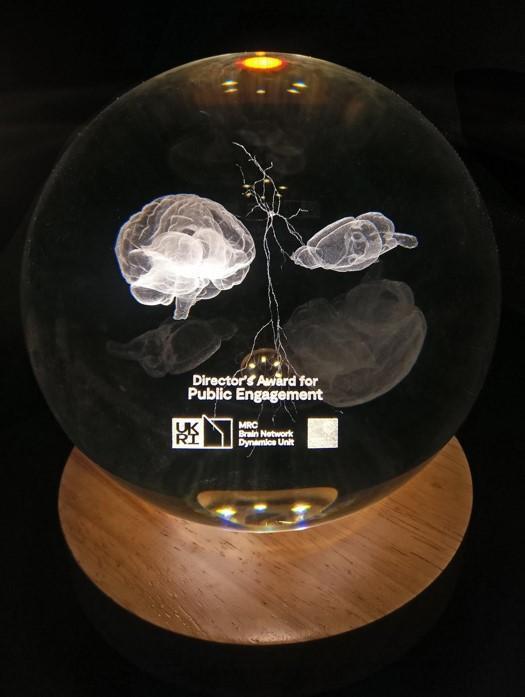
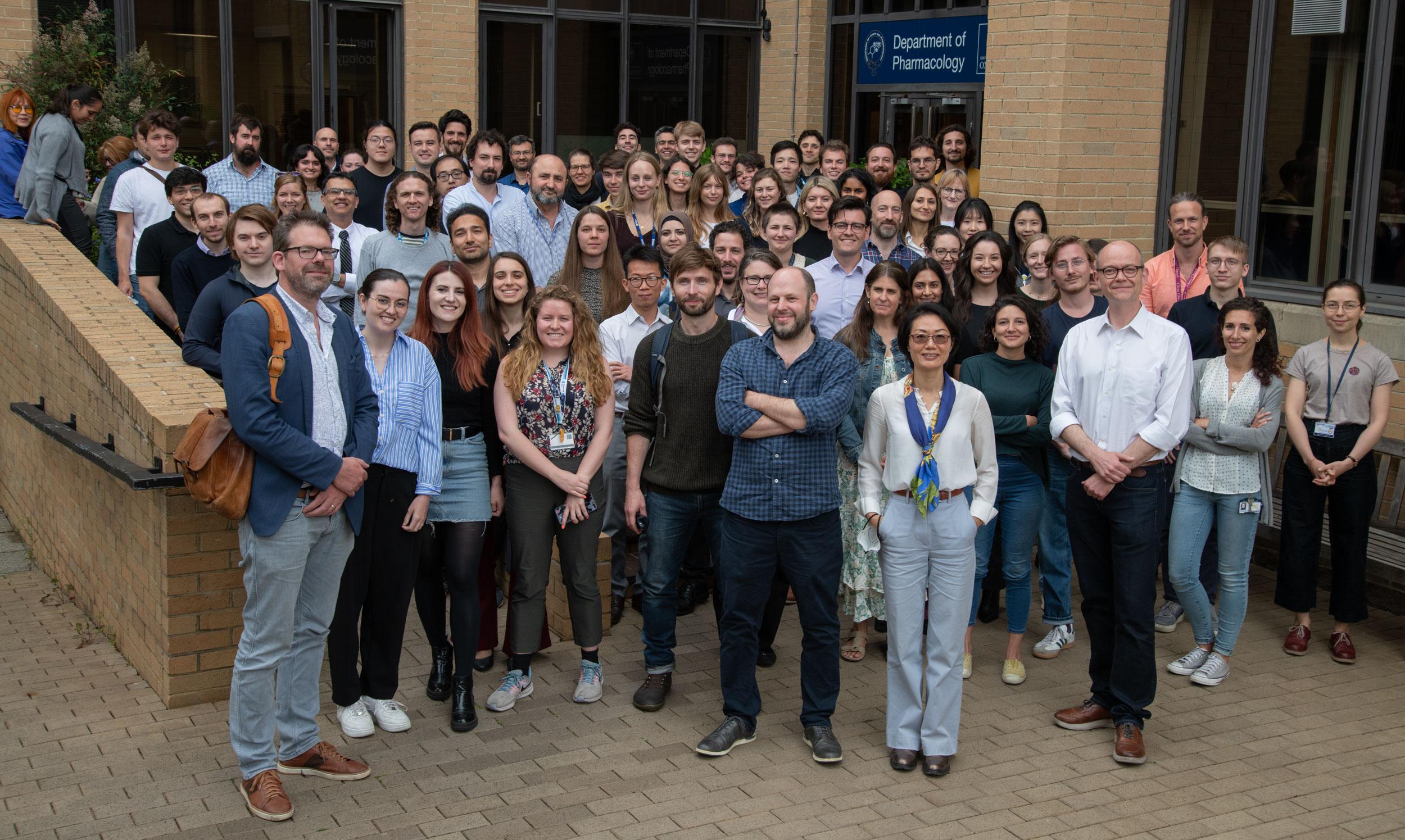
Attendees at the MRC BNDU’s Science Day in Summer 2024.
The Unit held its eighteenth Science Day on Friday 5th July 2024. Unpublished work and future research projects were the focus of discussion, and Unit members and visitors enthusiastically took the chance to provide the constructive feedback needed for multidisciplinary team science.
There were 8 short talks and 17 poster presentations delivered by the Unit’s early-career researchers. Attendees were also treated to two Keynote Lectures: A first by Professor Penny Lewis of Cardiff University, in which she gave an engaging account of sleep engineering for health and cognition; and a second lecture by Professor Karunesh Ganguli of the University of California, San Francisco, in which he showcased the power of cross-species work to define the mechanisms underlying motor learning in health and in recovery from brain injury.
Unit Director Professor Peter Magill commented: “Another excellent opportunity to share ideas, know-how and data with colleagues, as well as to take stock of the Unit’s progress in synergistically integrating science, technology, engineering and mathematics into our research. The vigour of the whole community on the day was really uplifting.”
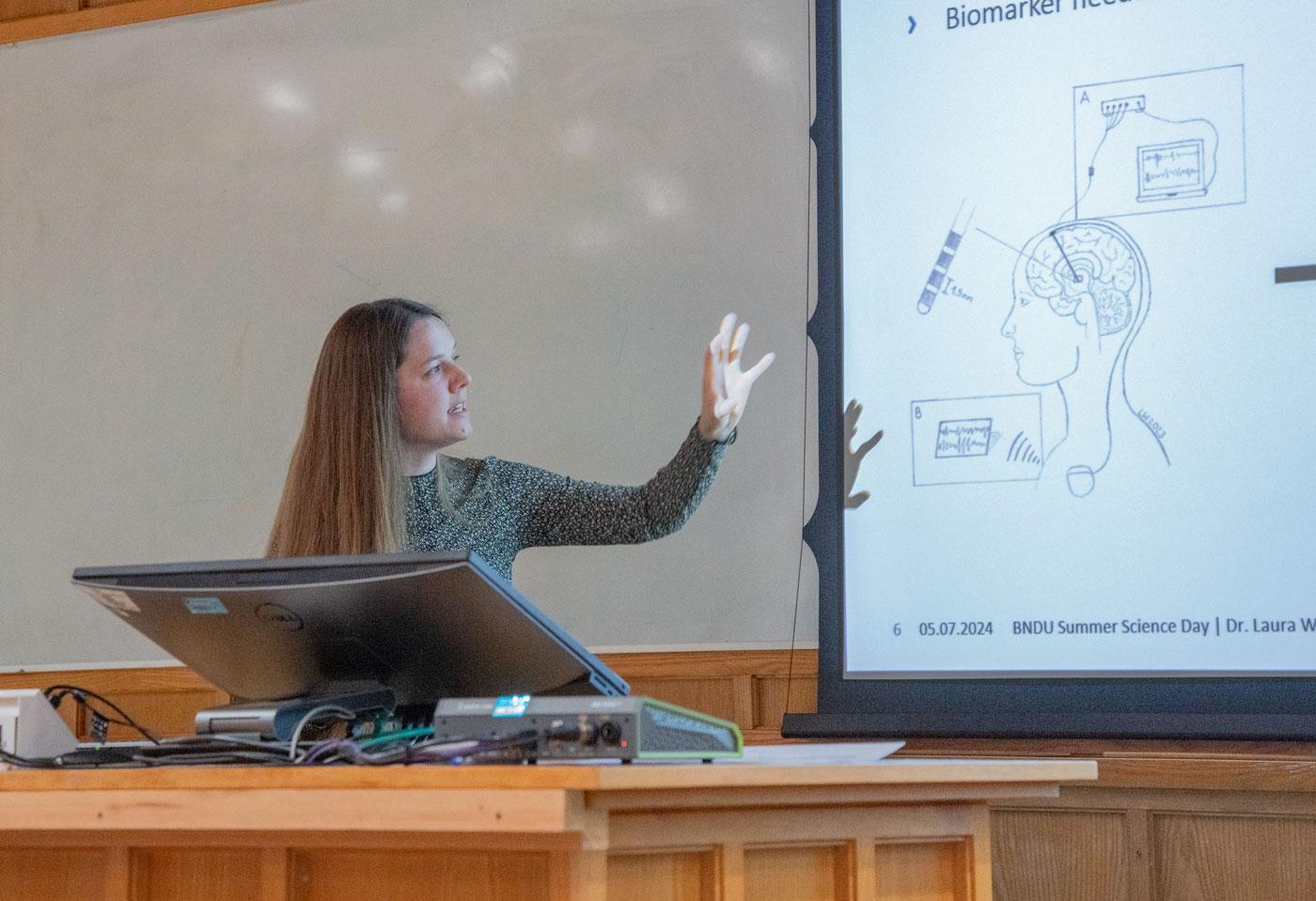
Unit postdoctoral researcher Laura Wehmeyer presents innovative ways of analysing brain network dynamics in patients with Tourette syndrome.
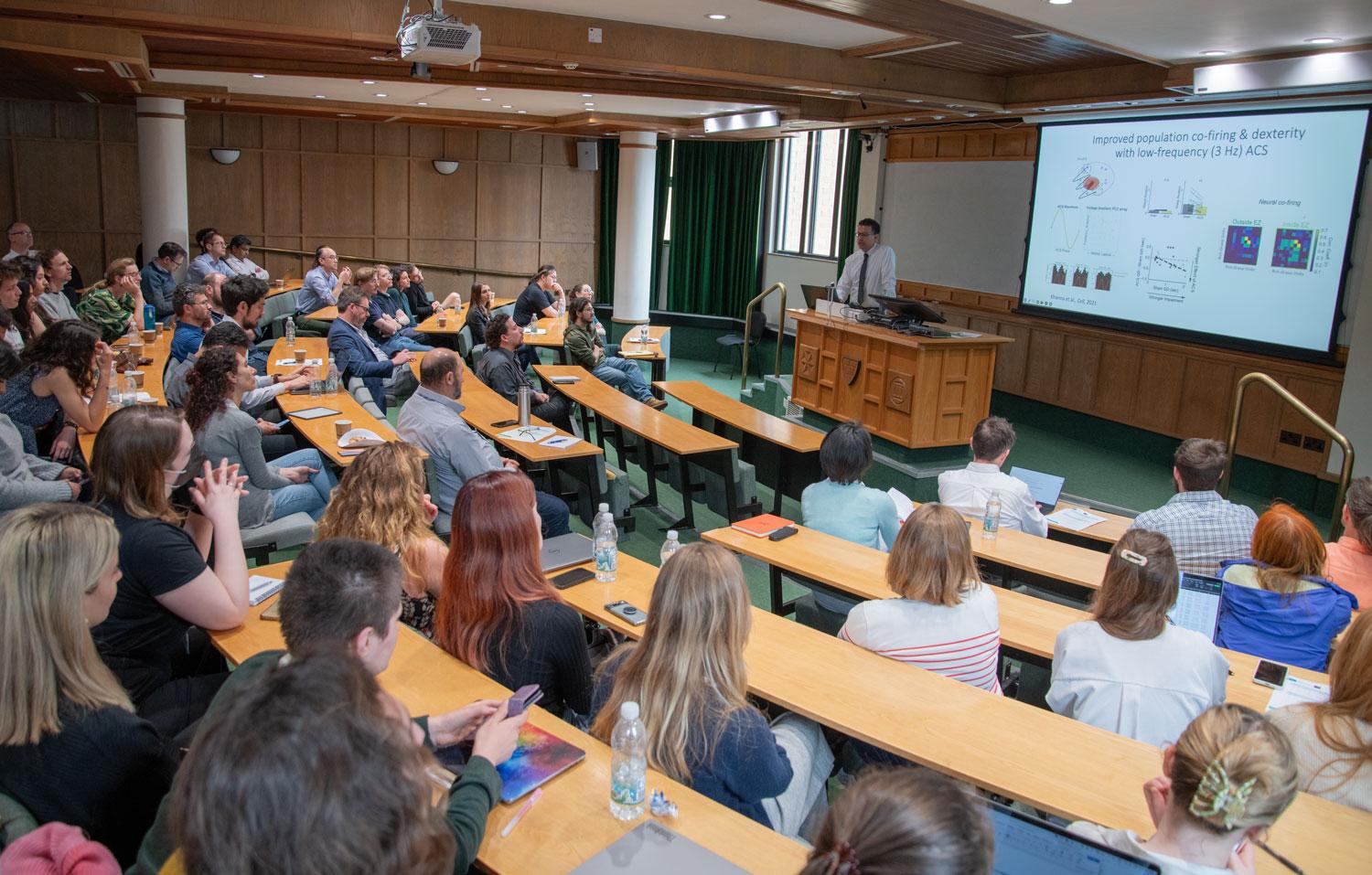
Keynote lecturer Karunesh Ganguli of UCSF showcases his work defining the mechanisms underlying motor learning at the Unit’s Science Day in Summer 2024.
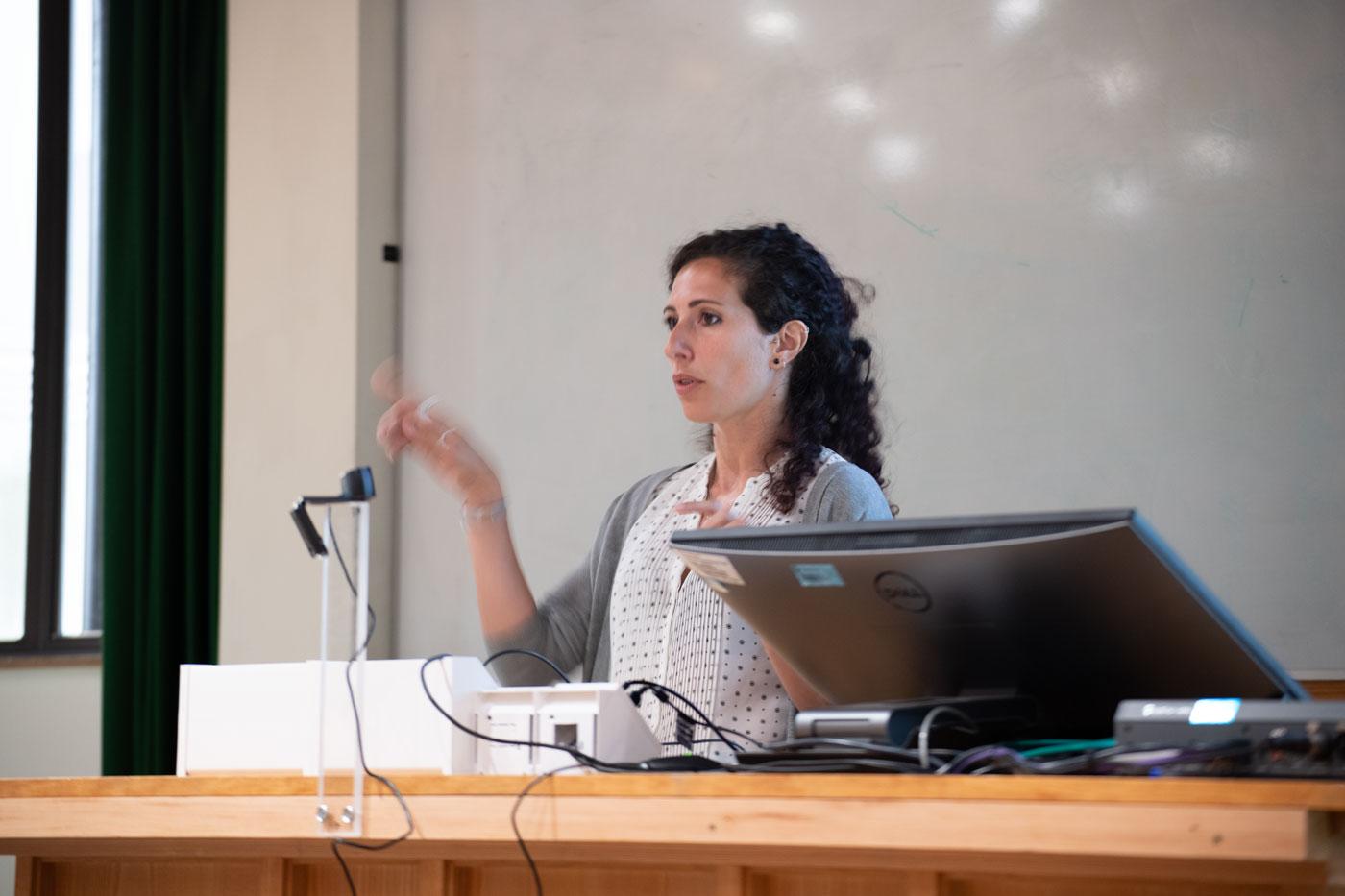
Unit postdoctoral researcher Melissa Serrano explains her latest research on neural representation of timing behaviour at summer Science Day 2024.
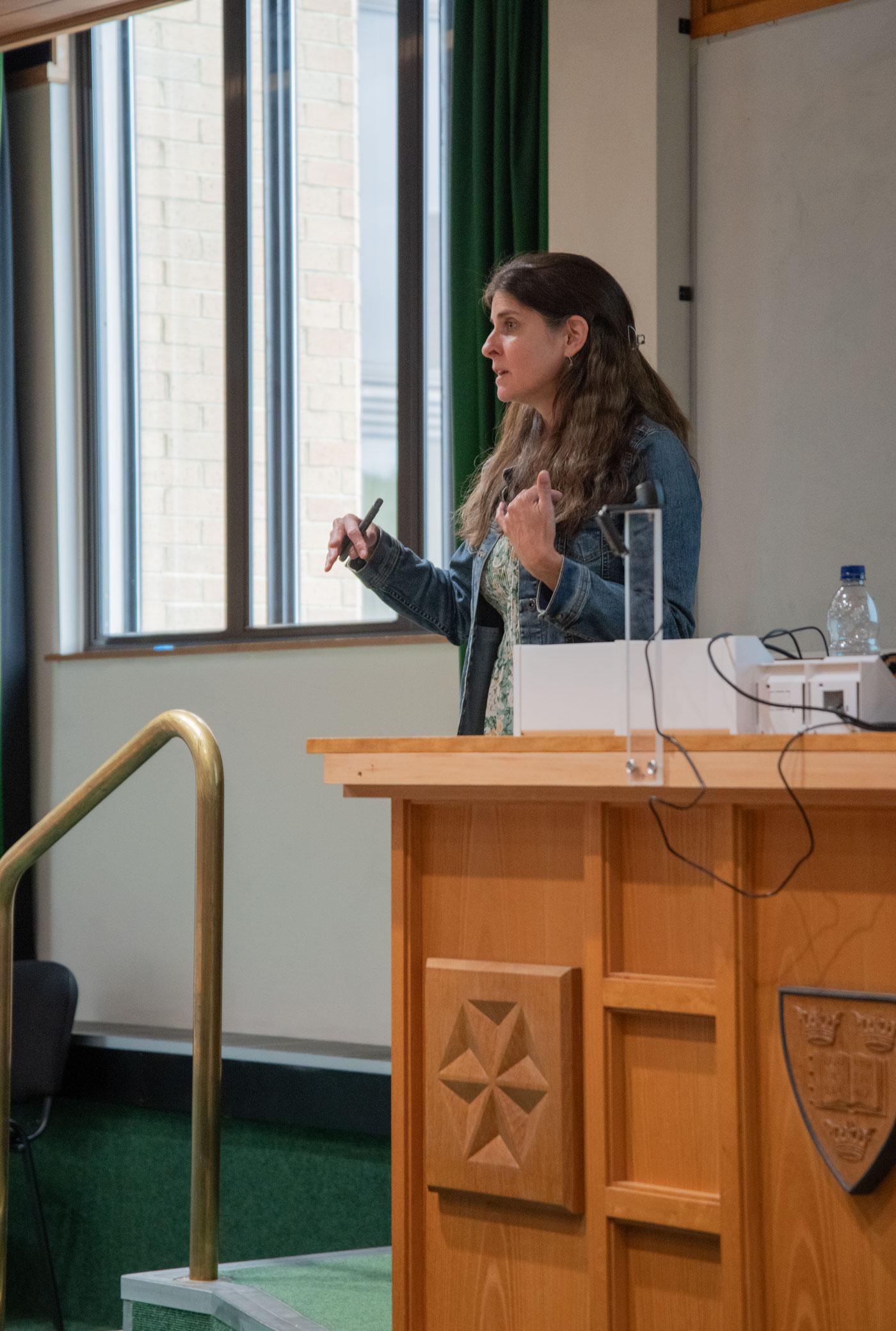
Professor Penny Lewis of Cardiff University answers audience questions after her Keynote Lecture on sleep engineering at the Unit’s Science Day in Summer 2024.
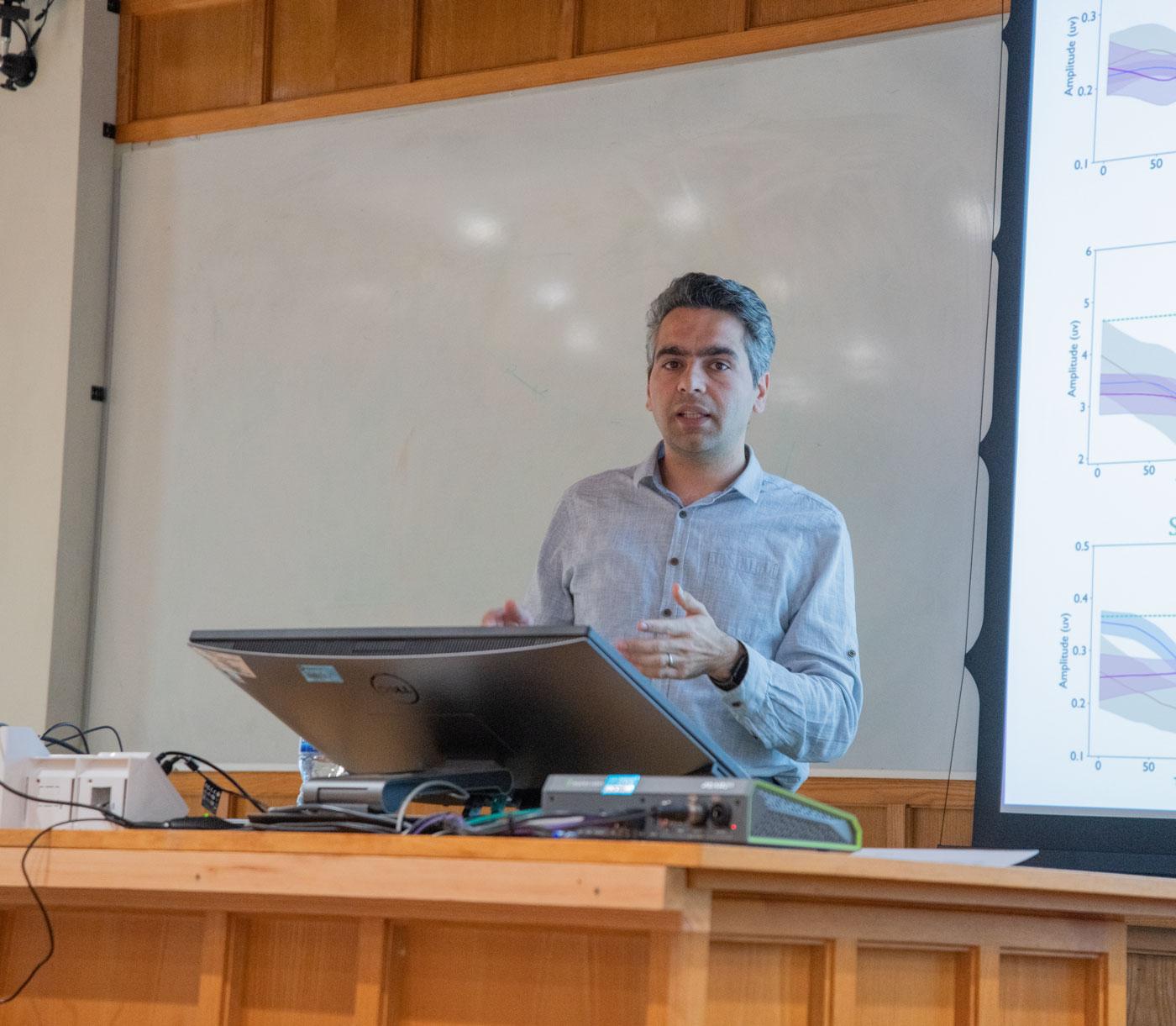
Unit postdoctoral researcher Bahman Abdi-Sargezeh discusses how to use deep learning to predict the occurrence of pathological oscillations in the human brain.
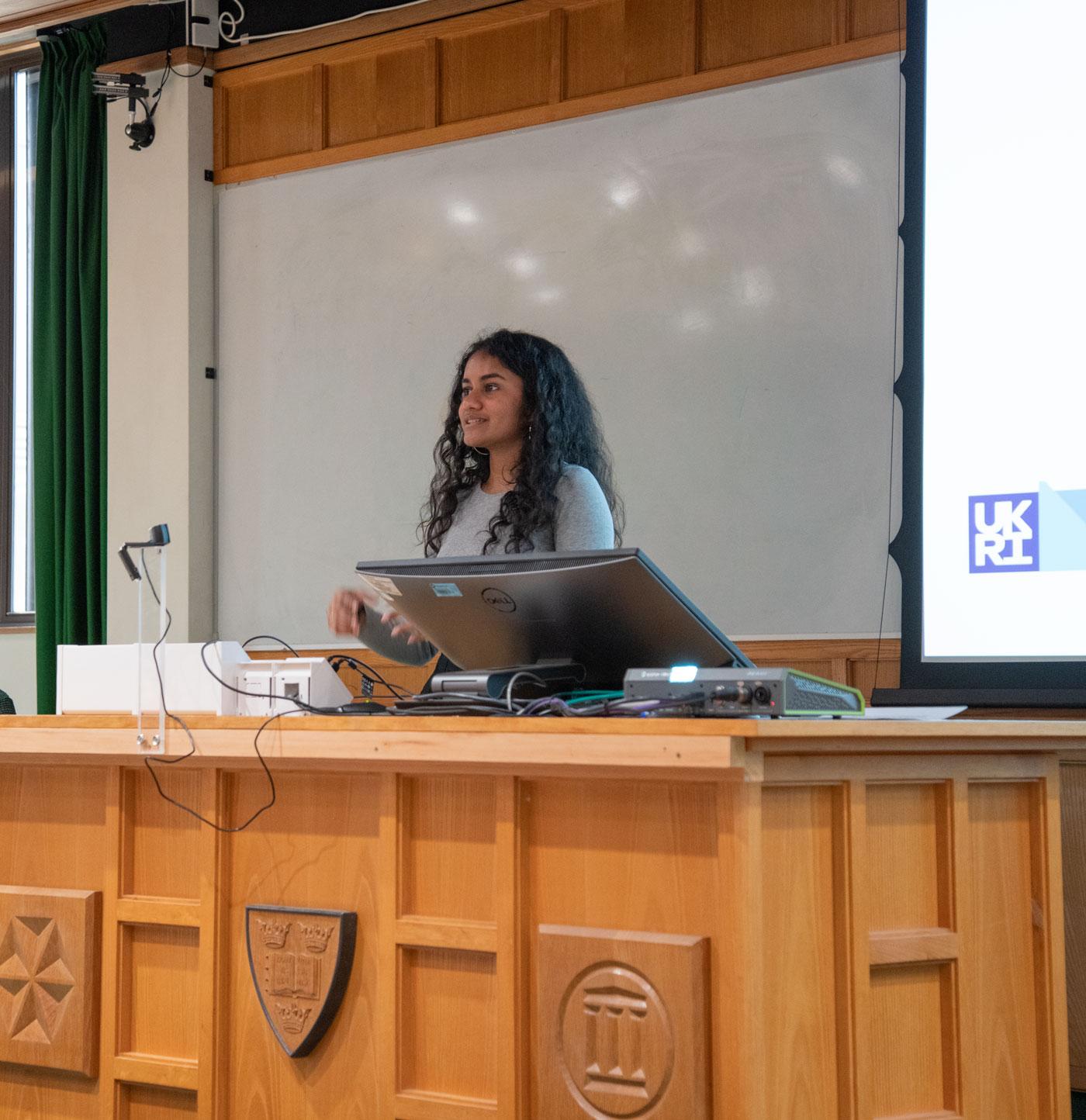
Unit student Sumedha Nalluru discusses new facets of memory reactivation in the human brain.
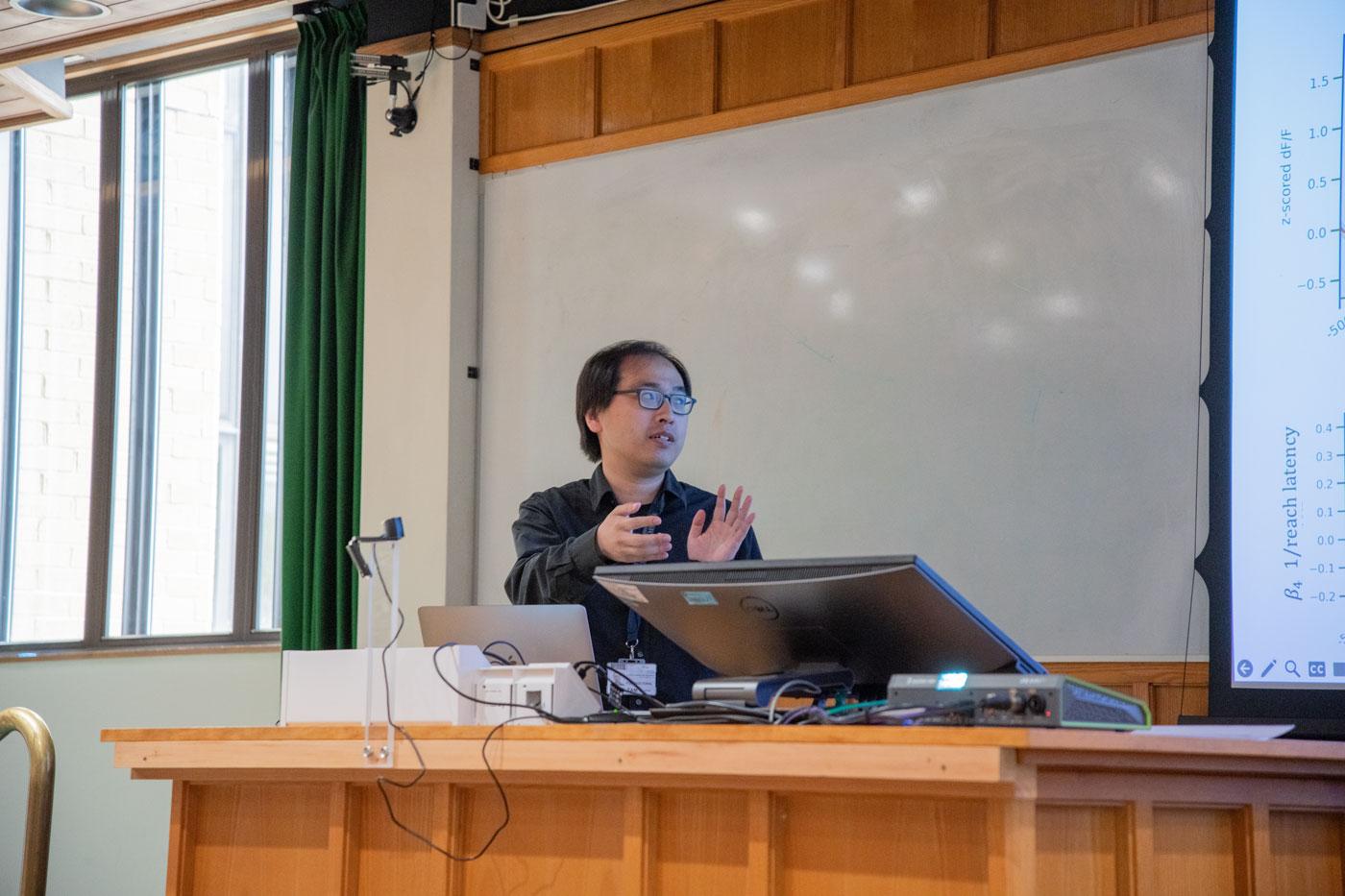
Unit postdoctoral researcher Teris Tam sheds new light on neuromodulator signalling dynamics in the striatum.
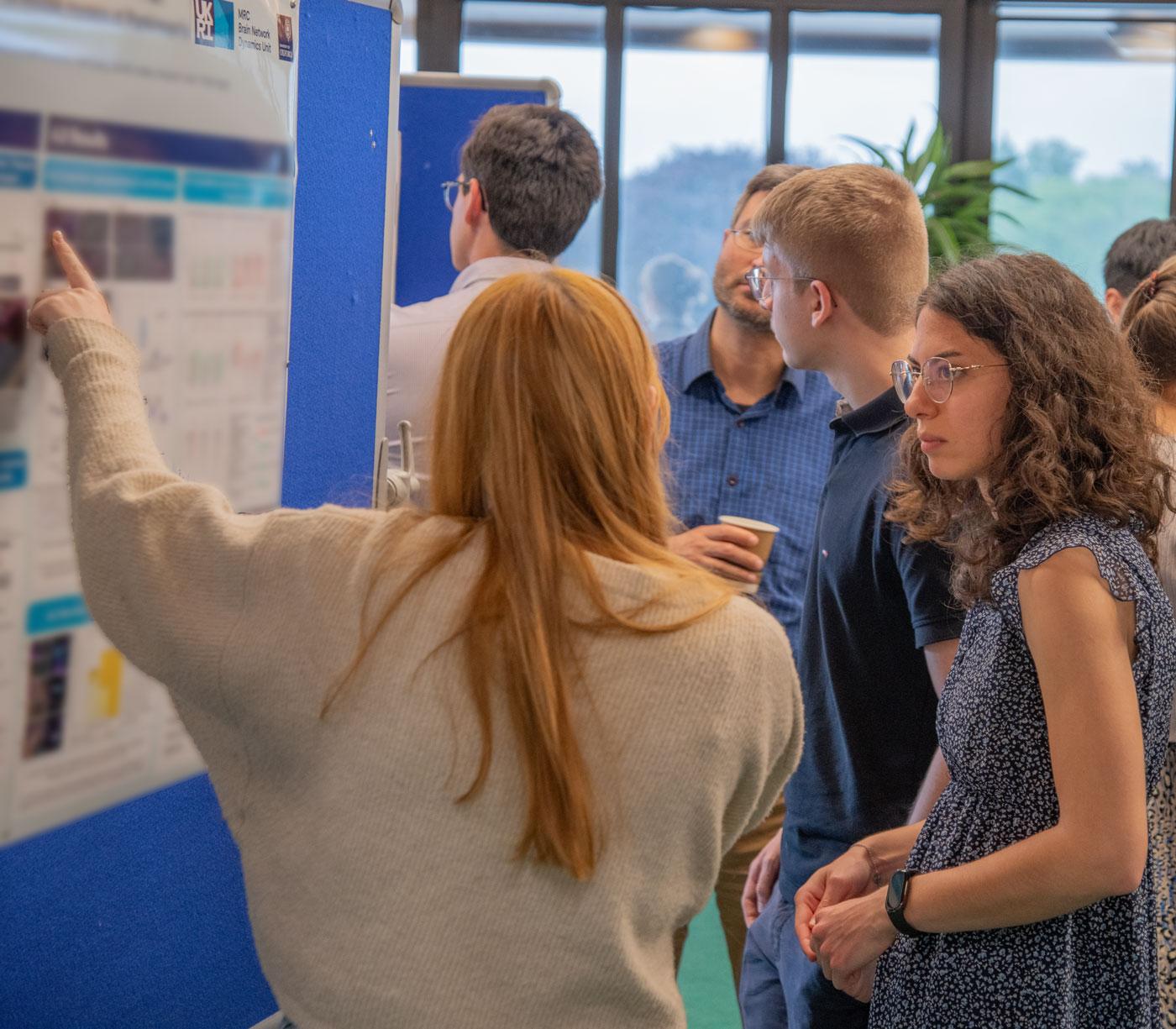
Unit early-career researchers exchange ideas at the poster session during summer Science Day 2024.
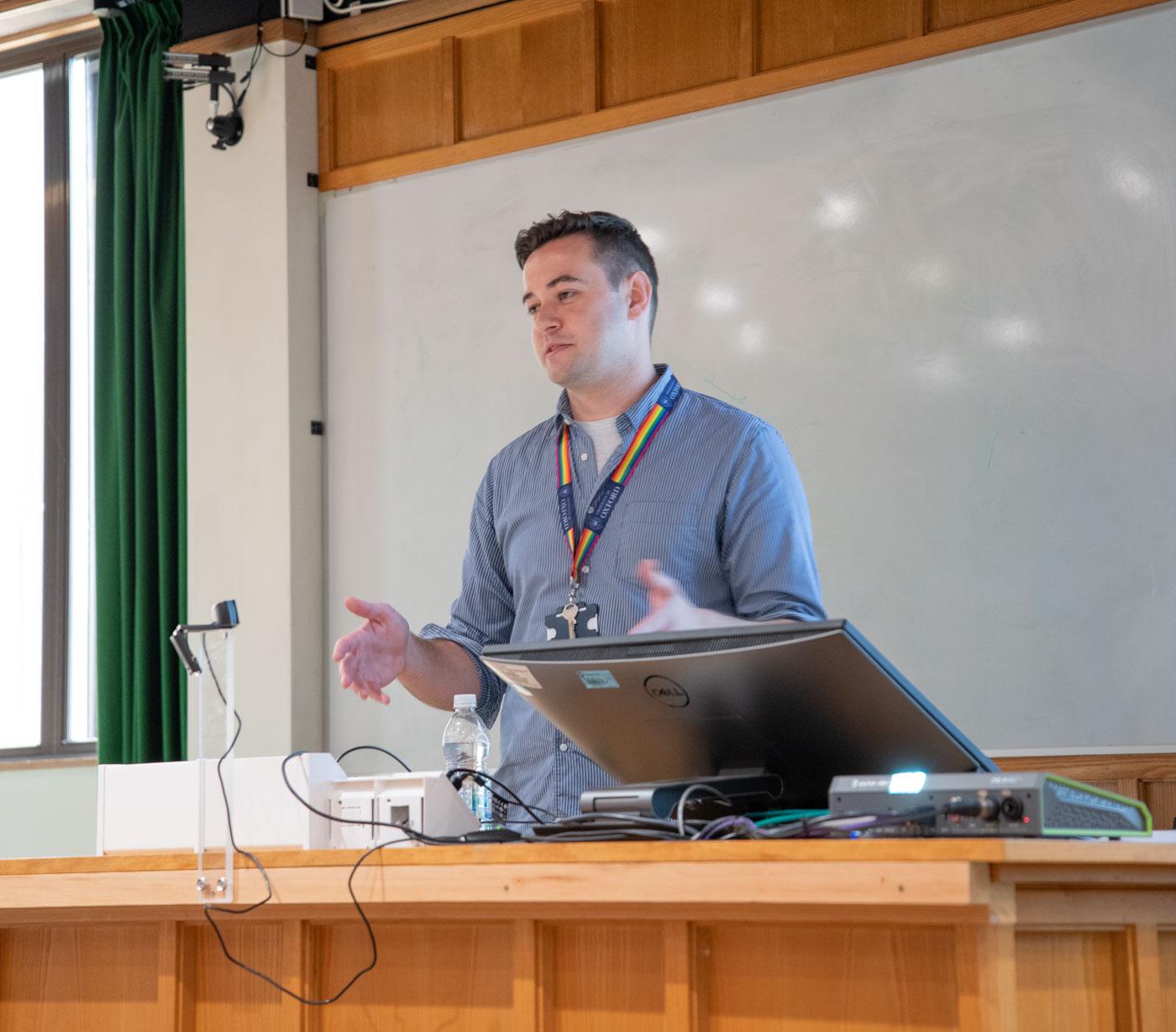
Unit postdoctoral researcher John Fleming discusses the merits of in silico models for development and validation of brain stimulation algorithms.
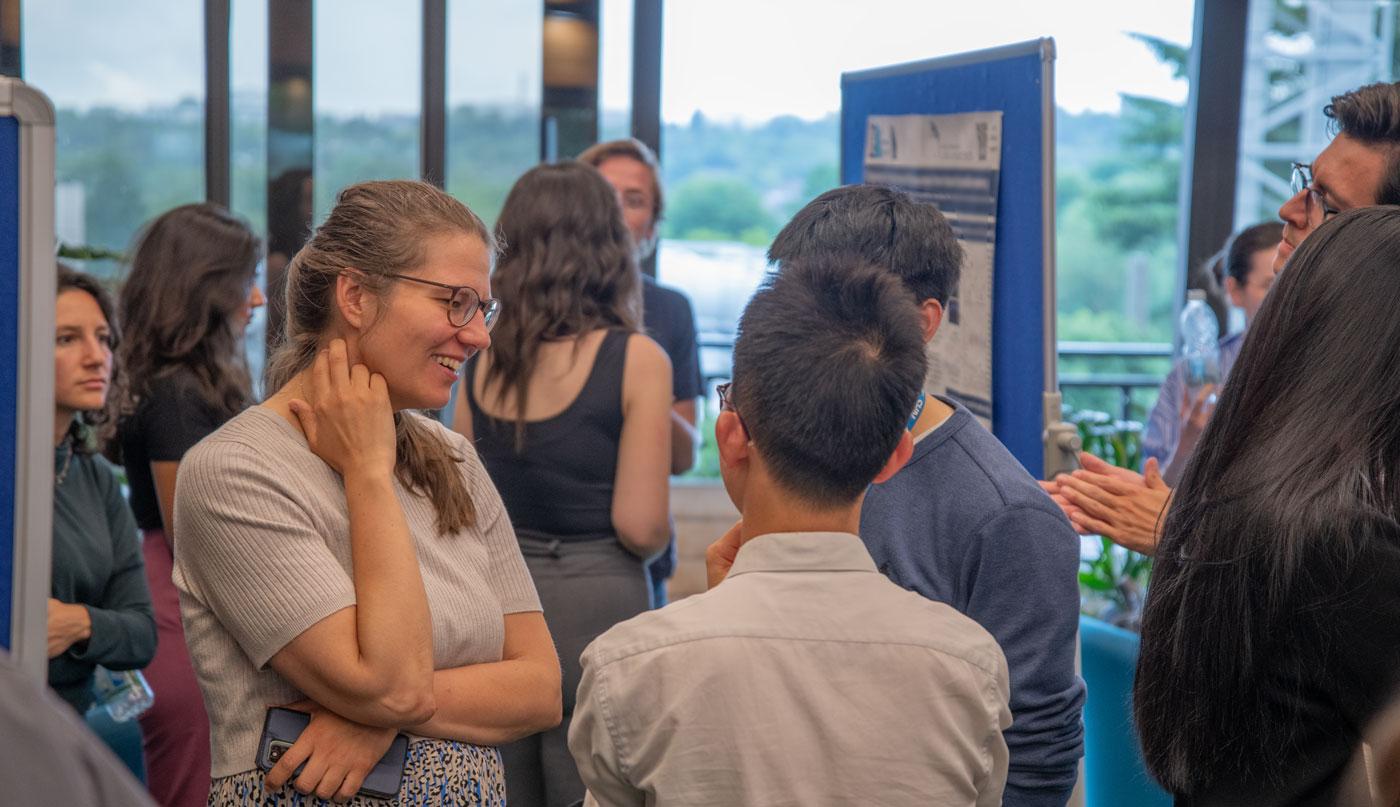
Unit early-career researchers exchange ideas at the poster session during summer Science Day 2024.
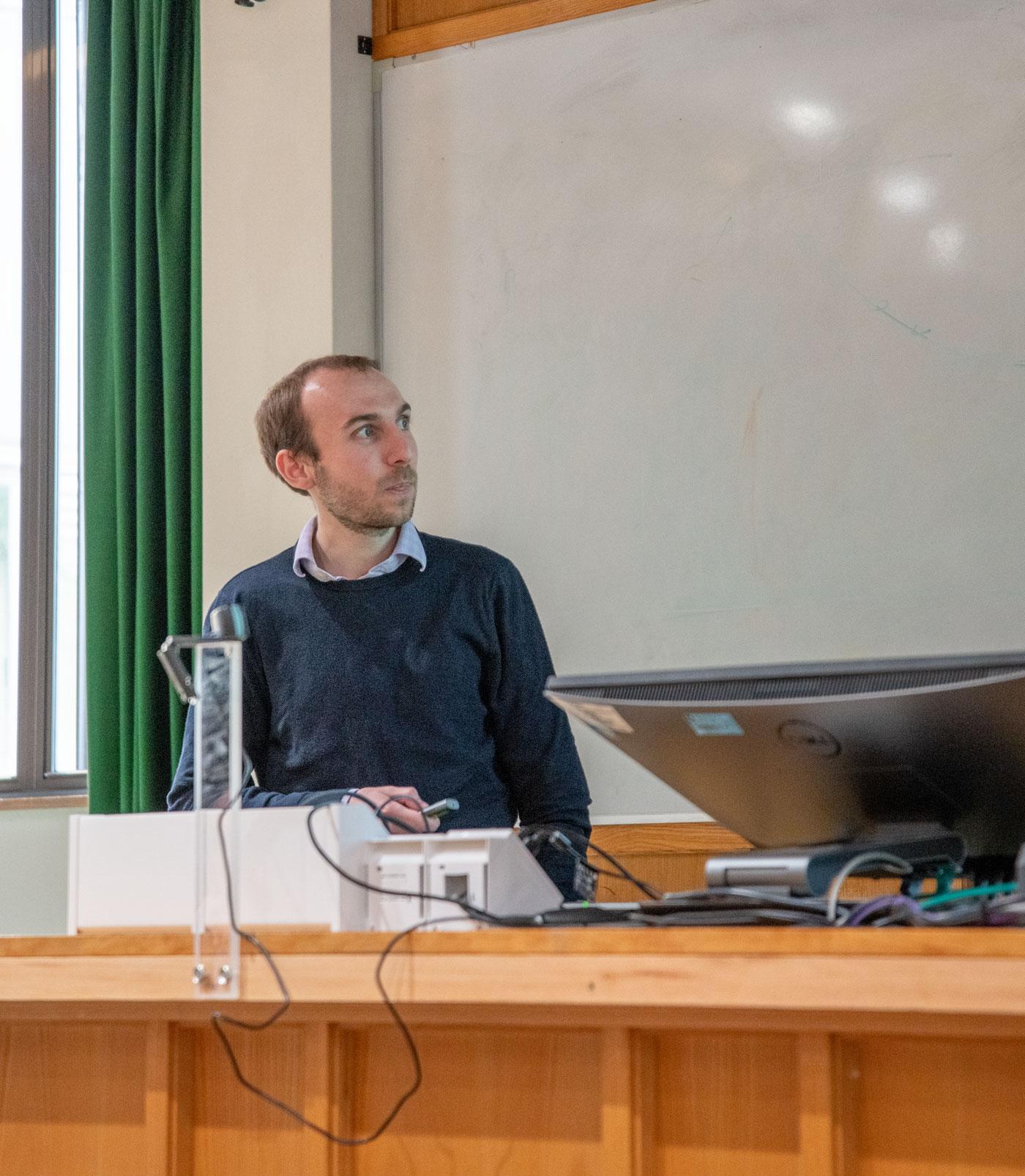
Unit student Samuel Liebana Garcia reveals how striatal dopamine encodes teaching signals for learning.
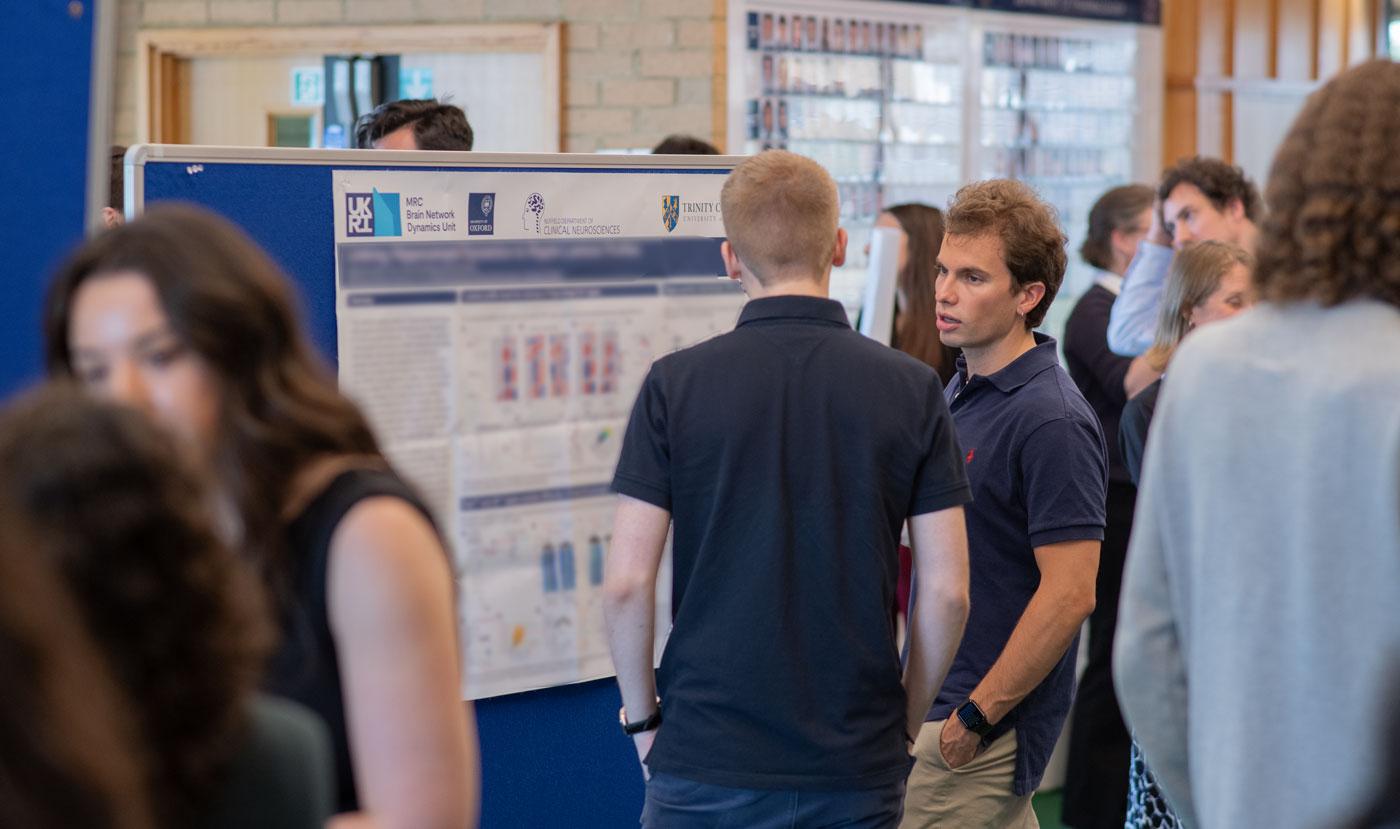
Unit early-career researchers exchange ideas at the poster session during summer Science Day 2024.
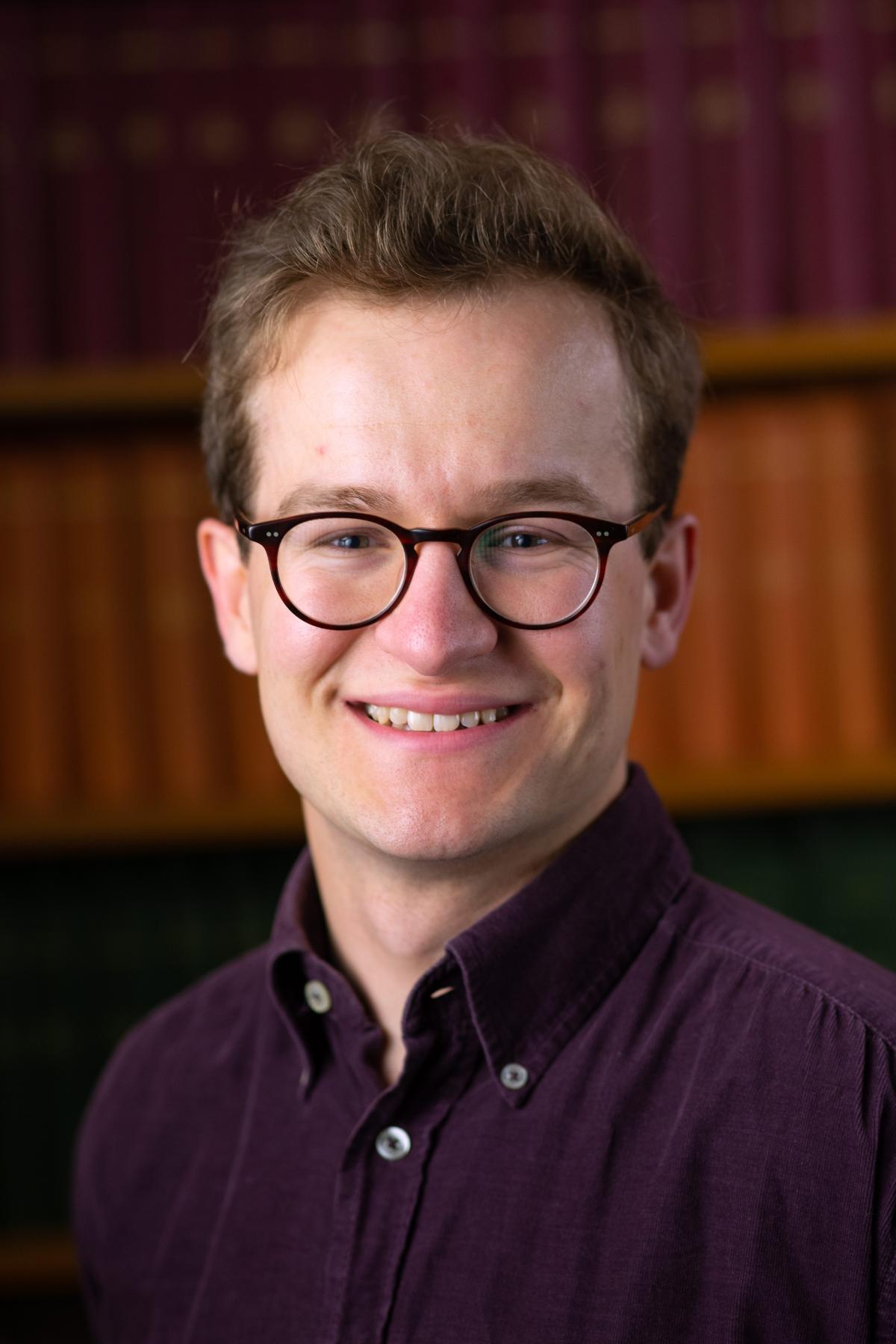
Our congratulations go to Unit D.Phil. student James Sermon for successfully defending his doctoral thesis, entitled “Modelling frequency-based neural responses to Deep Brain Stimulation in Parkinson's disease”, in his viva voce examination on 28th June 2024.
James’s viva examiners were Professor Anne Skeldon (University of Surrey) and Professor Mark Woolrich (University of Oxford).
James was supervised at the MRC BNDU by Professor Tim Denison, Dr Benoit Duchet and Professor Huiling Tan.

We are delighted to announce that the Unit has again achieved multiple accreditations through the Laboratory Efficiency Assessment Framework (LEAF), a nationally recognised scheme designed to improve the sustainability and efficiency of laboratories.
Seven laboratories at the Unit achieved accreditation for their sustainable practices. The Biomedical Services Facility gained a Bronze award for the first time. The Barron Group and Denison Group both renewed their Bronze awards. The Dupret Group, Sharott Group and Tan Group each enhanced their sustainability practices, gaining Silver awards for the first time. The Magill Group renewed its Silver award from last year.
To gain the awards, each Group was audited for the practical steps they had taken to meet several assessment criteria, including those related to the use of equipment and space, the management of samples and chemicals, ventilation, waste/recycling, and the engagement of colleagues.
Unit Director Professor Peter Magill commented “I am delighted that the Unit’s continued commitment to sustainable research has been recognised in this way. Congratulations to the many Unit members who worked together to identify and act on opportunities to help the Unit reduce its carbon emissions, waste and spend.”

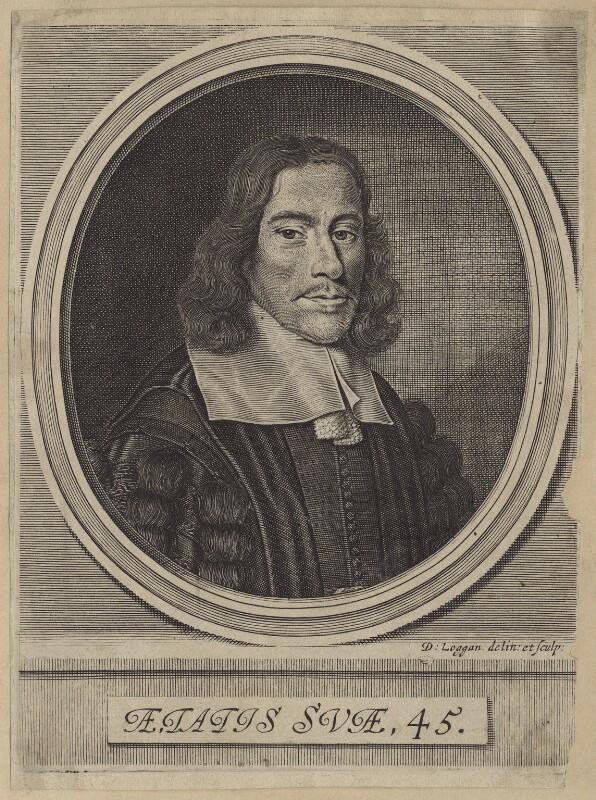
Portrait of Thomas Willis. By David Loggan, line engraving, published 1674. © National Portrait Gallery, London. CC-BY.
Many congratulations to Unit members Dr. Yuhang Song, Dr. Shenghong He, and Associate Professor Melanie Fleming who each won prizes at this year’s Thomas Willis Day.
Thomas Willis Day (named after Thomas Willis (1621-1675), an Oxford-based pioneer in the field of brain research and neurology) is an annual event where staff and students from across the Nuffield Department of Clinical Neurosciences come together to celebrate the work of the Department.
Yuhang won the Early Career Researcher Prize in recognition of his paper “Inferring neural activity before plasticity as a foundation for learning beyond backpropagation”, published in Nature Neuroscience.
Shenghong won the Intermediate Career Researcher Prize in recognition of his paper “Beta-triggered adaptive deep brain stimulation during reaching movement in Parkinson's disease”, published in the journal Brain.
Melanie, who is the Unit’s Patient and Public Involvement Lead, won the Public Engagement Prize in recognition of her sustained excellence in promoting and delivering impactful public engagement/involvement activities across the Unit and wider Department.
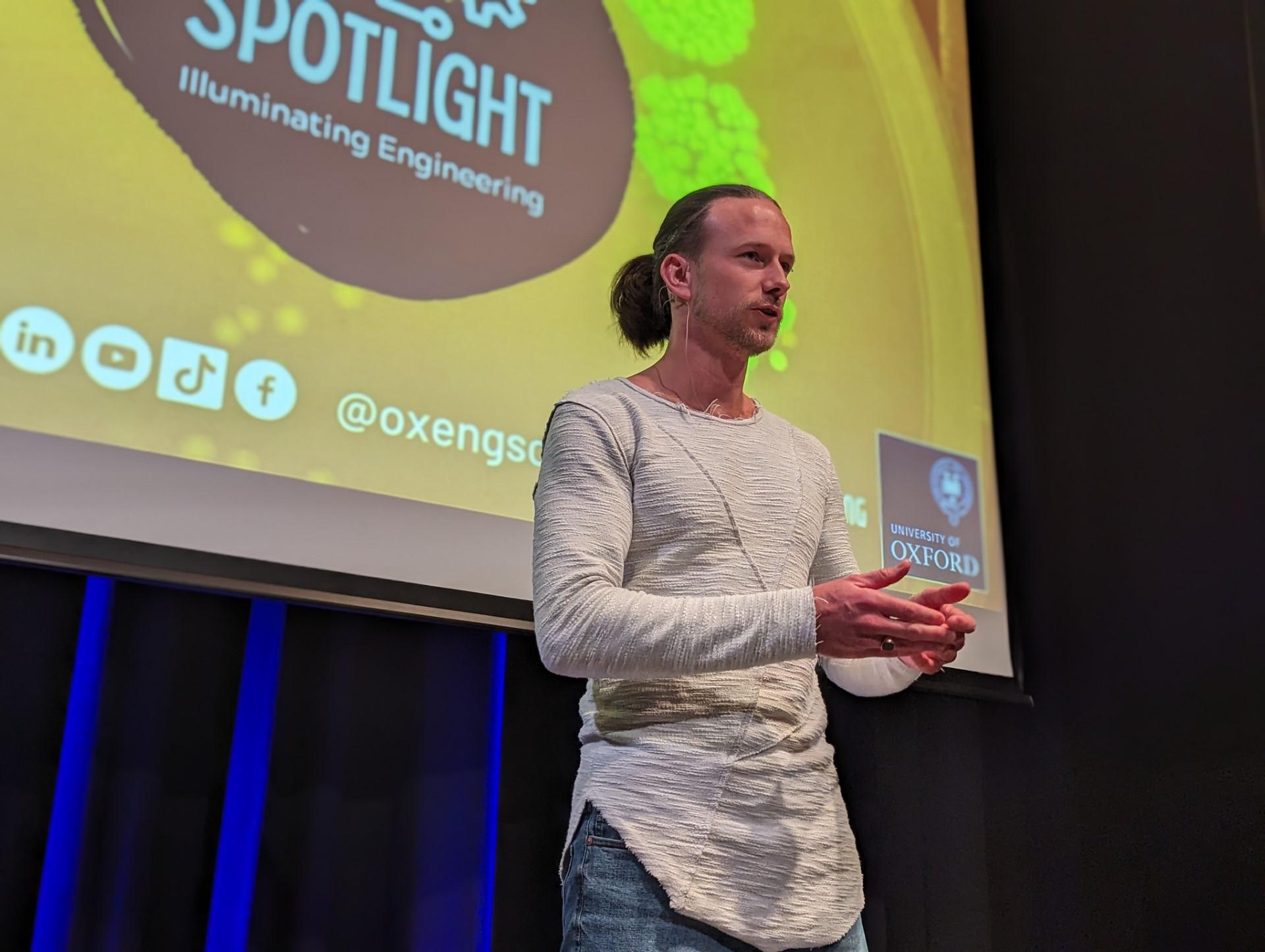
Unit Postdoctoral Neuroscientist Dr. Joram van Rheede participated in the 'Spotlight on Engineering' public engagement talks at the Old Fire Station theatre in Oxford on the 17th April. The evening featured 6 speakers all giving 10-15 minute talks on engineering-related research. Joram presented on the interaction between deep brain stimulation therapy and sleep, highlighting research carried out by the Denison Group and Sharott Group at the Unit, as well as collaborations with the neurosurgical teams at the John Radcliffe Hospital, Great Ormond Street Hospital, and King’s College Hospital.
Joram commented, "It was great to work with colleagues from the Department of Engineering Science to put on a set of talks for a general audience. We participated in a public speaking workshop and practice sessions to help us craft a compelling narrative about our work, finding metaphors to explain important principles, and avoiding specialist jargon. The response from the audience was great- the questions were more stimulating than the ones we get at science conferences!"
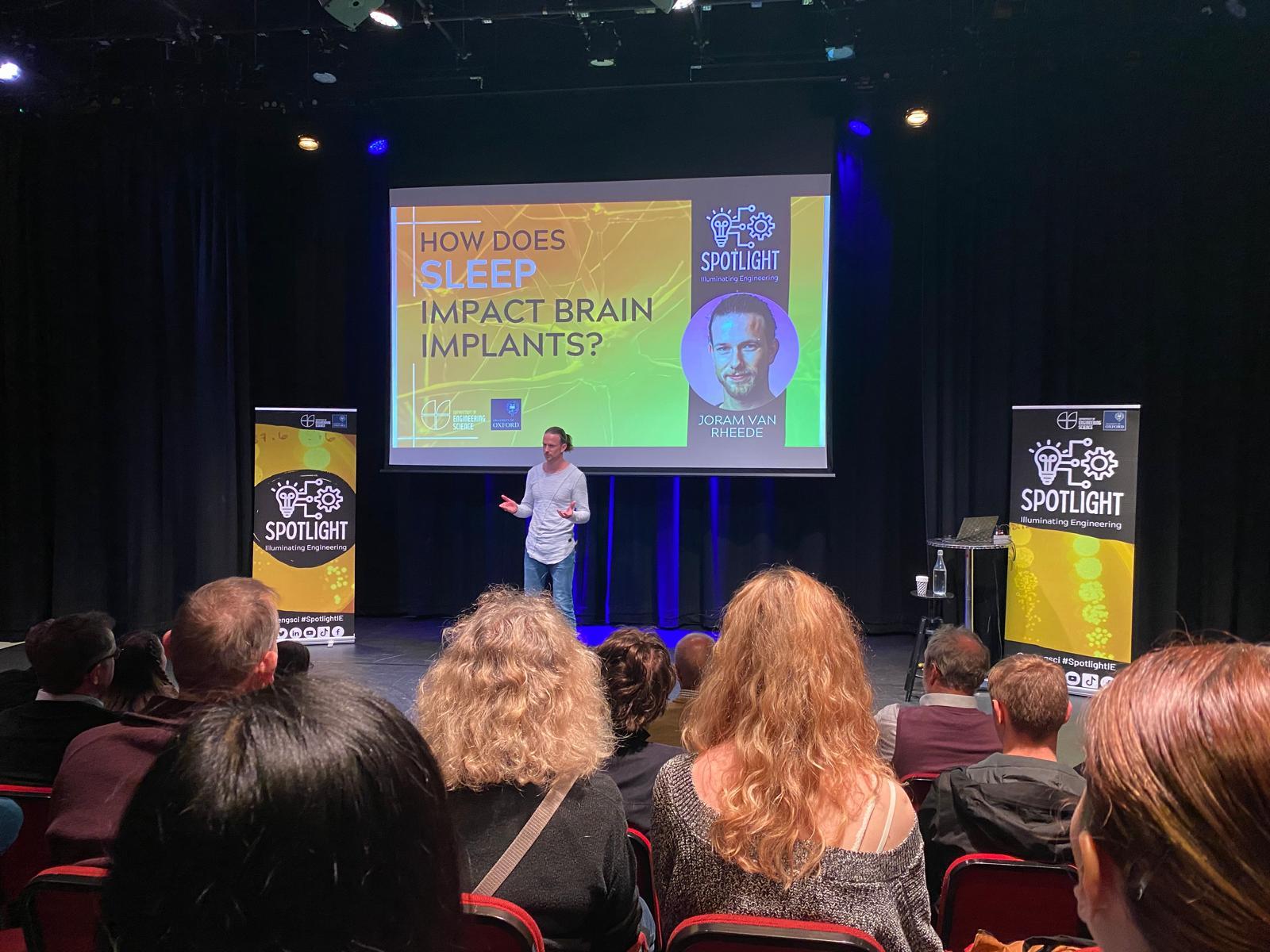
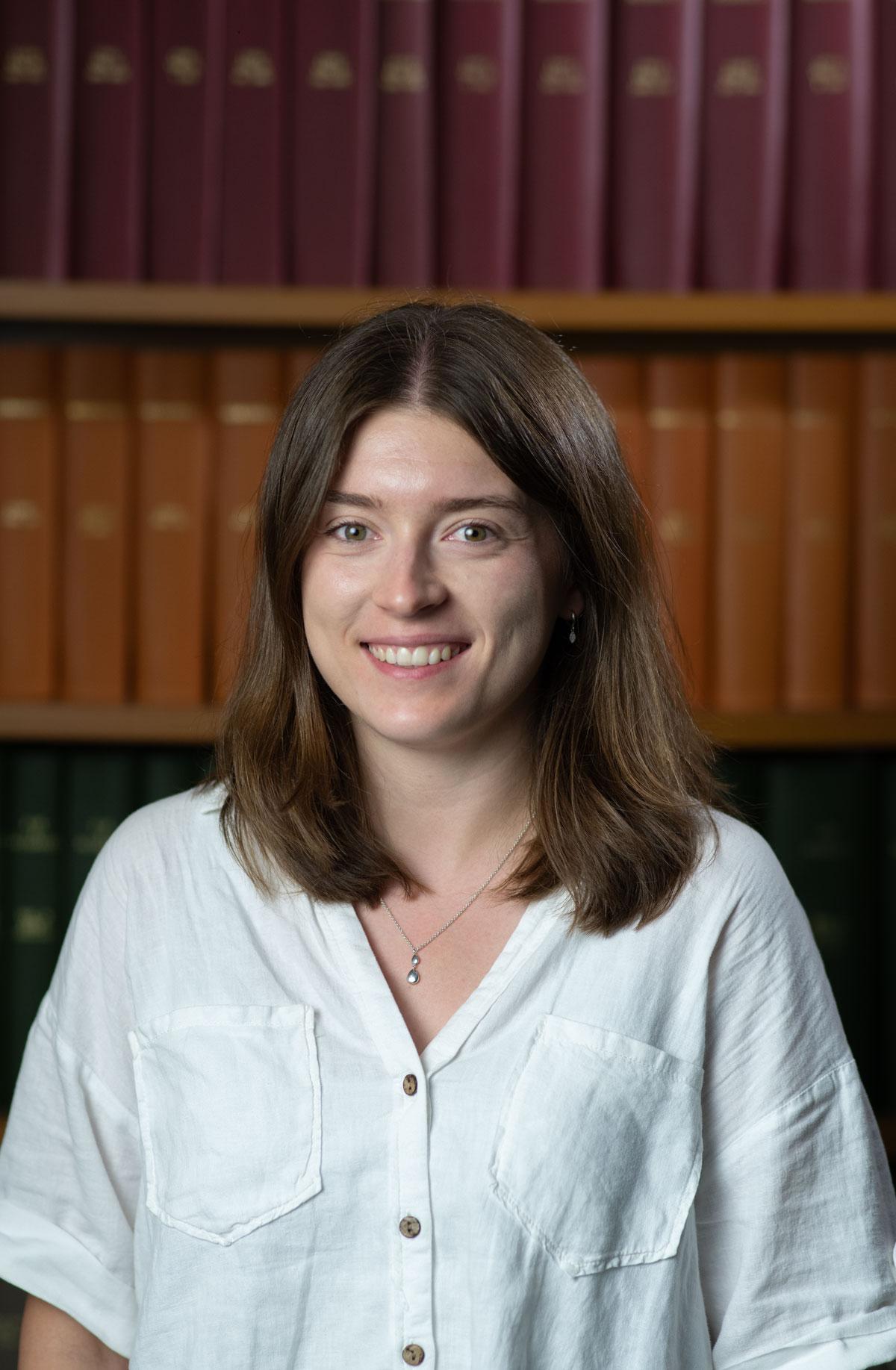
We are pleased to welcome Dr. Helen Collins to the Unit as a Postdoctoral Neuroscientist in the Magill Group.
Helen holds a B.A. in Cell and Systems Biology, an M.Sc. in Neuroscience, and a D.Phil. from the University of Oxford. Helen’s doctoral research investigated the neurobiological mechanisms of selective serotonin reuptake inhibitor discontinuation syndrome in mice, using a range of behavioural and neurochemical techniques. After finishing her D.Phil. in 2023, Helen worked at a biotechnology company in Oxfordshire focused on developing novel treatments for Alzheimer’s; she led a small molecule drug discovery project and established the in vivo programme of work for a mouse model of the disease.
Here in the Unit, Helen will be using fibre photometry and electrophysiology in behaving mice to characterise the signalling dynamics of dopamine and other neuromodulators in the striatum in health and experimental Parkinsonism.
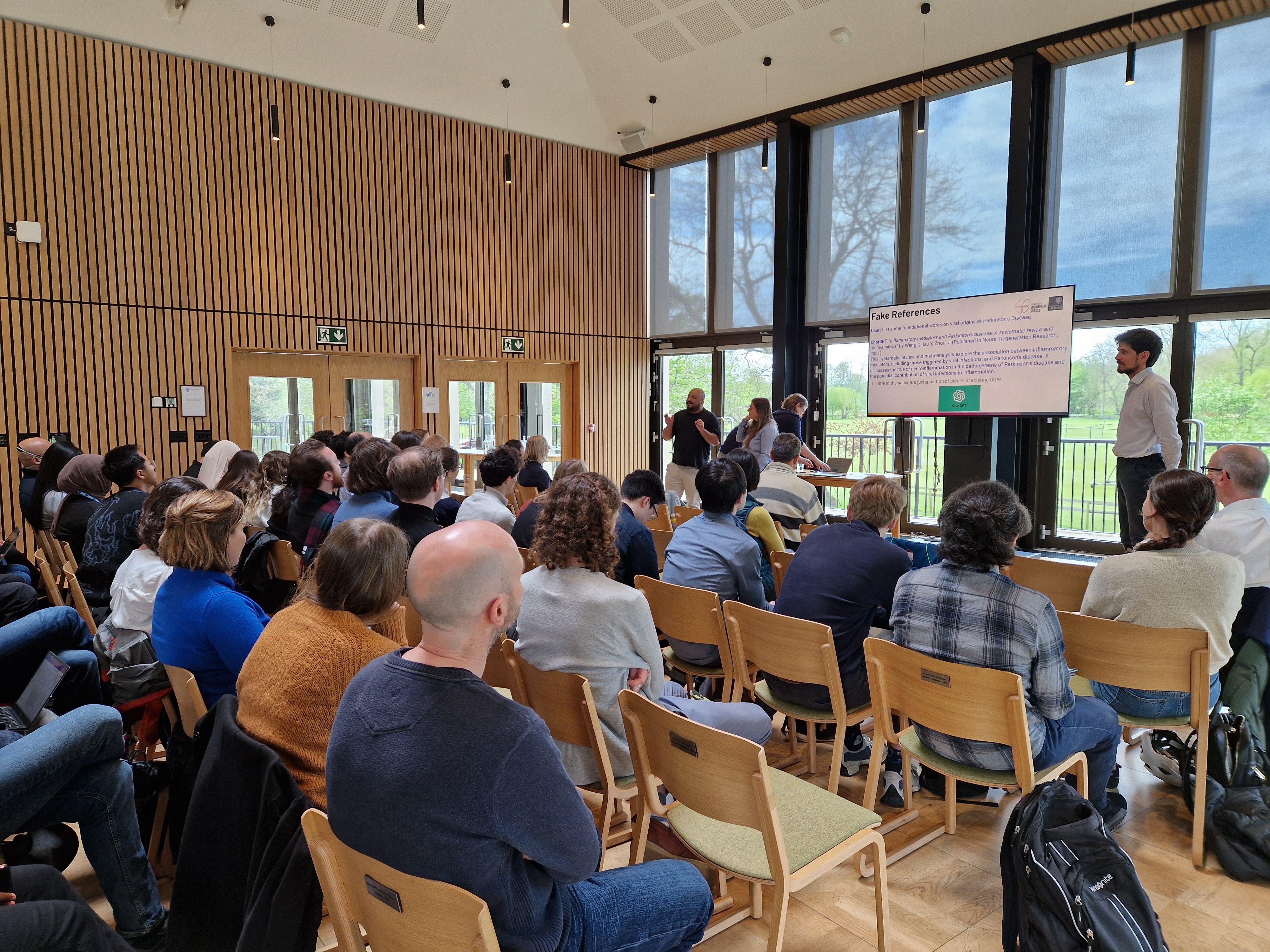
The Unit held its ninth annual Training & Careers Development Event on Tuesday 16th April. Unit members, together with colleagues from across the University of Oxford, were treated to a range of engaging presentations and workshops, each of which was accompanied by a lively Q & A session.
Unit Director Professor Peter Magill started the Event by recapping some key aspects of the Unit’s approach to training and career development. This was followed by an insightful joint presentation by Dr Anshul Thakur and Dr Elena Gal of the University Department of Engineering Science about the use of Artificial Intelligence and Large Language Models as research tools. Dr Susan Black of the University’s Careers Service then gave a talk and some welcome advice on honing interview skills.
In the first of two break-out workshops held after refreshments, Unit Group Leader Professor Charlotte Stagg led an interactive discussion about how to thrive at Oxford. In the second workshop, Unit Group Leader Professor Tim Denison chaired a session during which some of the Unit’s alumni offered their insights about thriving in careers in academia and industry outside of Oxford.
Professor Stagg, Chair of the Unit’s Training & Career Development Committee, commented “The training and career development of all our members is hugely important to the Unit, and we were delighted to host another successful training event at St Hilda’s College. Unit members actively engaged in a wide range of sessions, and we were particularly pleased to welcome back some of our wonderful alumni to speak about their career paths after leaving the Unit. Thank you to all our speakers and to the Committee for all their hard work.”
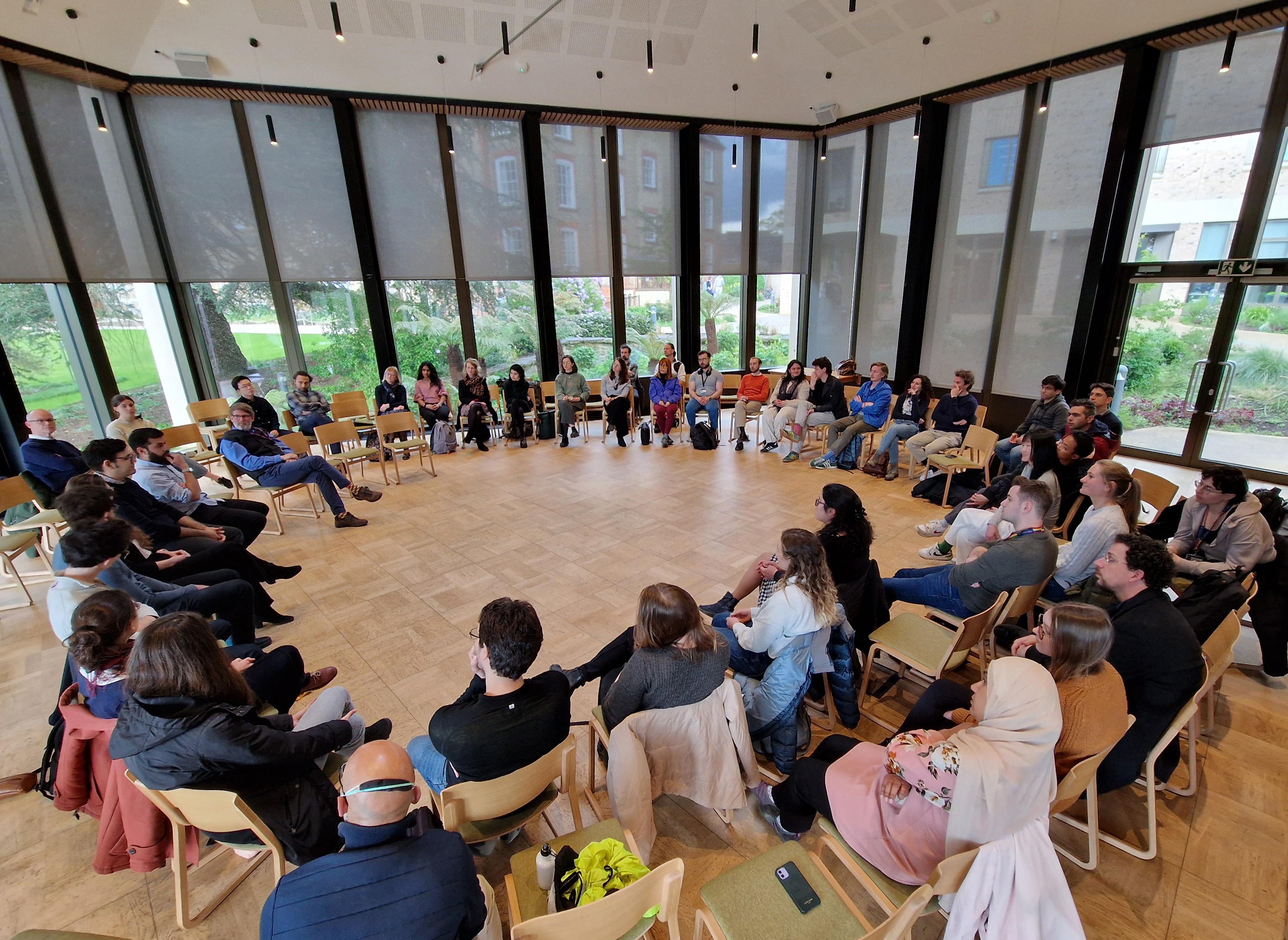
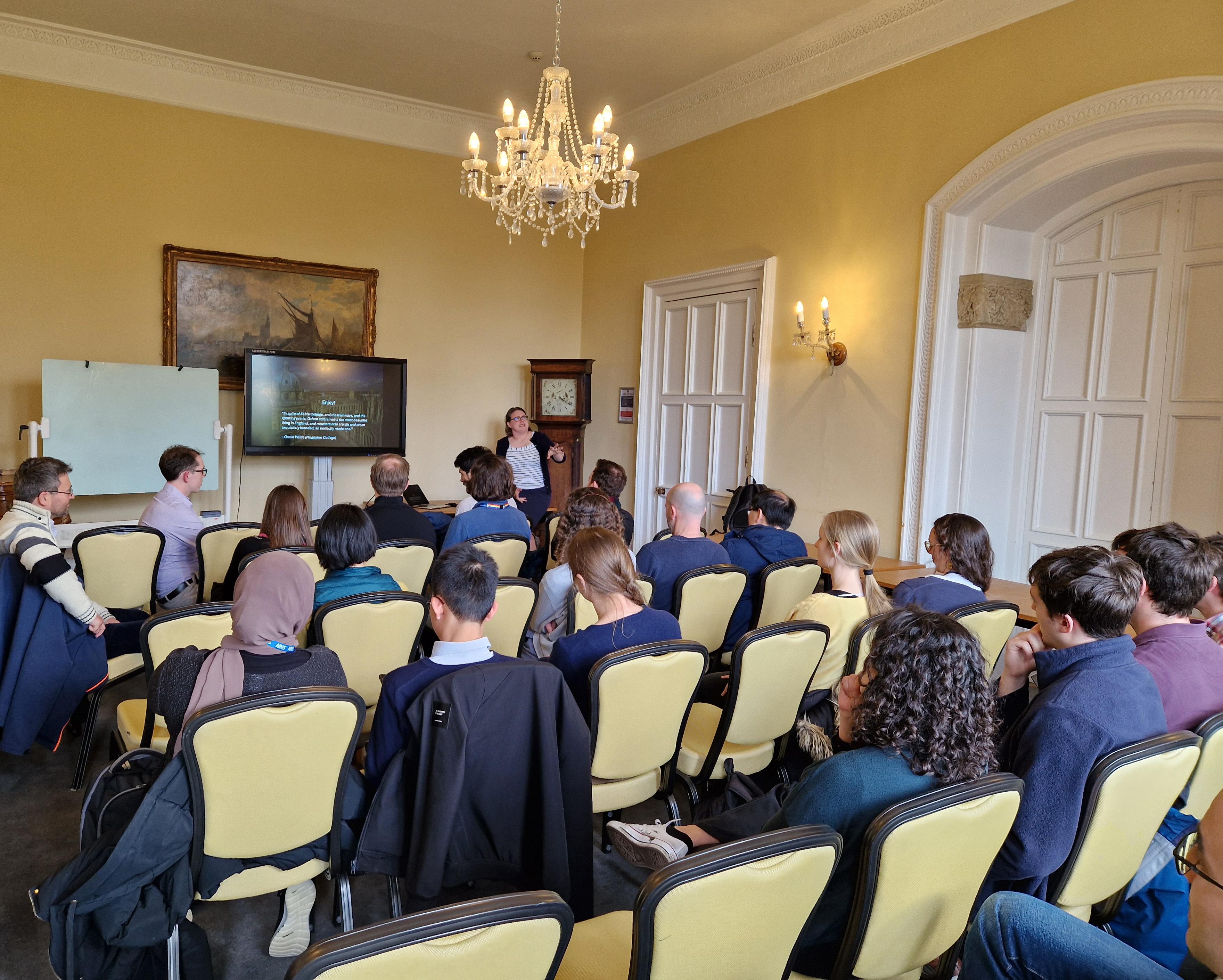
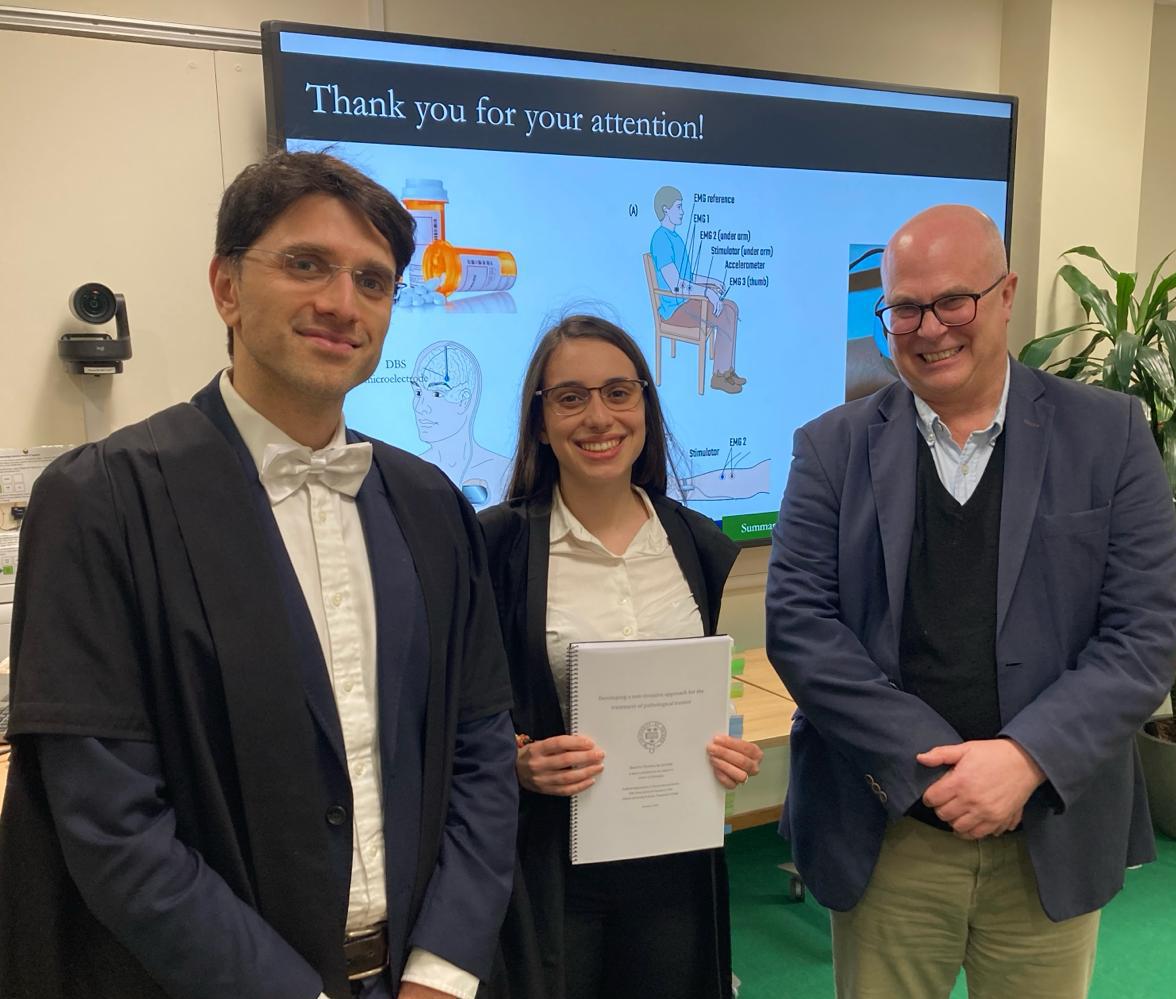
After the viva voce: A happy D.Phil. candidate (centre) with satisfied examiners (left and right).
Our congratulations go to Unit D.Phil. student Beatriz Silveira de Arruda for successfully defending her doctoral thesis, entitled “Developing a non-invasive approach for the treatment of pathological tremor”, in her viva voce examination on 27th March 2024.
Beatriz’s viva examiners were Professor Simon Farmer (University College London) and Dr Ashwini Oswal (University of Oxford).
Beatriz was supervised by Professors Hayriye Cagnan, Tim Denison and Huiling Tan at the MRC BNDU.
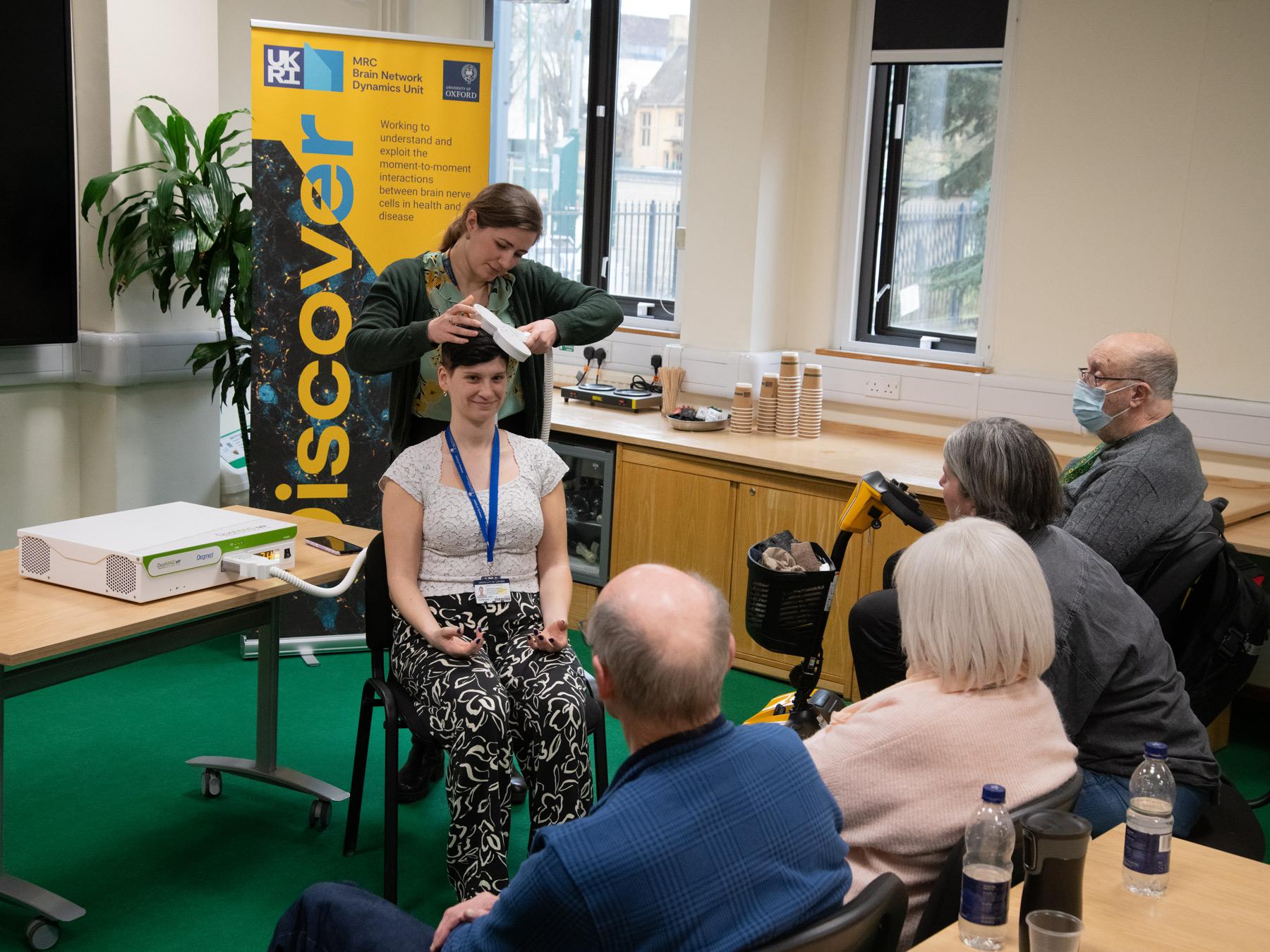
Unit early-career researchers Camille Lasbareilles and Ioana Grigoras demonstrate transcranial magnetic stimulation to members of the Unit’s Patient and Public Advisory Group.
On 14th March, the MRC Brain Network Dynamics Unit once again welcomed stakeholders onsite for its annual Open Day.
In the morning, the Unit opened its doors to pupils and teachers from local state-funded schools as they visited to learn more about STEM (Science, Technology, Engineering and Mathematics) and medical research. During their visits, pupils talked informally to Unit staff and students about key concepts and challenges in brain research, as well as careers in STEM. Special emphasis was also placed on giving pupils the opportunity to see real working instruments and laboratories. The visit started with a group introductory session, where pupils viewed the “The Symphony of the Brain” film showcasing the Unit’s work, followed by a discussion around the use of animals in research. After that, the pupils rotated in small groups through different hands-on activities that were led by the Unit’s early-career researchers and highlighted some of the Unit’s key research themes. These activities included a lab-based session exploring anatomical and electrophysiological studies of the brain using rodents, a demonstration of human brain stimulation, a computer game simulating patterns of brain activity, and a live demonstration of a brain-computer interface. The visit concluded with a wrap-up session capturing feedback.
In the afternoon, the Unit welcomed members of its Patient and Public Advisory Group (PPAG). After lunch with some of the Unit’s early-career researchers, PPAG members were offered a tour of activities and facilities in which they could see some ongoing research for themselves. Each of the activities was integrated with a lively discussion session, stimulating further conversations about Unit research in the clinic and at the lab bench. The visit concluded with refreshments, a final Q & A session, and a chance for the PPAG to give their feedback to the Unit team.
The Open Day received highly positive feedback from students, teachers, and PPAG members:
Comments from the schools included “This was excellent! Great combination of whole group talk introduction, smaller group activities, chance to ask questions, chance to hear about pathways into research.”
Comments from PPAG members included “Thanks for a great afternoon! Fantastic presentations, and a lovely team.” and “I thoroughly enjoyed the afternoon. I felt very well welcomed. Everyone was easy to talk to in the relaxed environment you created.”
Unit Director Professor Peter Magill commented “Another great Open Day at the MRC BNDU. Visitors and Unit hosts were clearly excited to be involved, and the conversations were rewarding for all. Effective public engagement often requires teamwork and diverse contributions, and it was great to see thirty Unit members come together to organise and deliver the Open Day.”
The Unit’s Open Day was one of many engaging events held at the University of Oxford and further afield during Brain Awareness Week 2024.
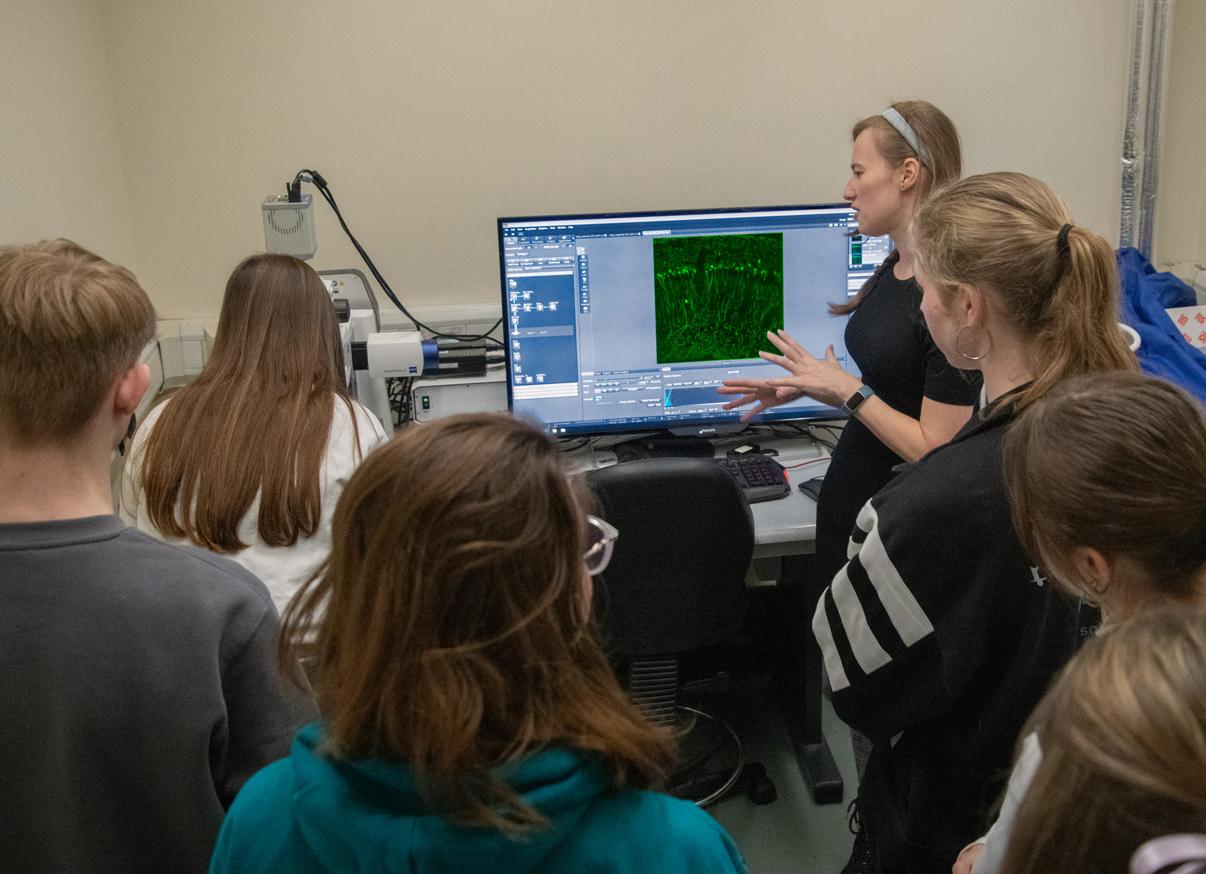
Unit student Demi Brizee talks to visiting school pupils about the Unit’s microscopes.
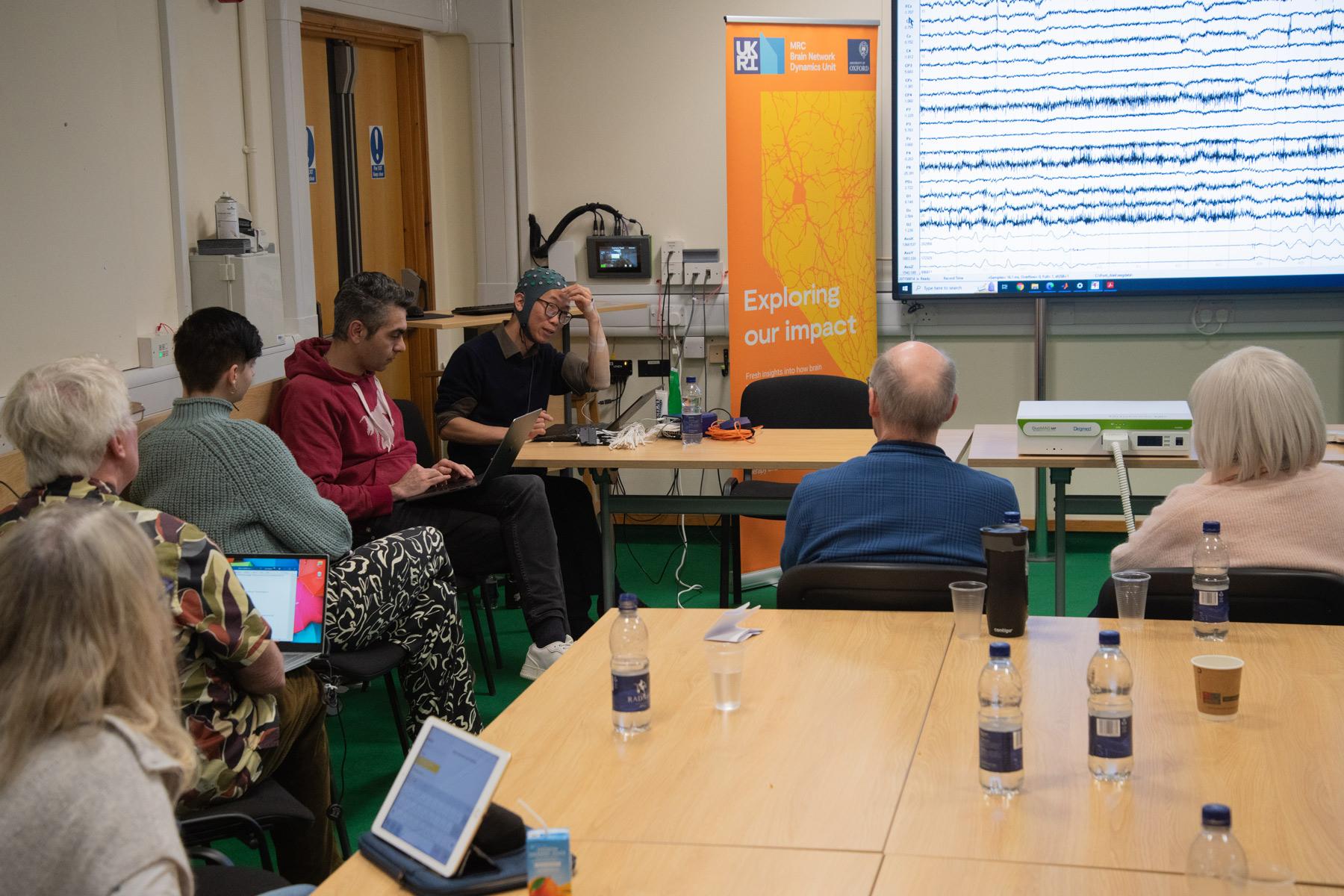
Unit researcher Shenghong He gives a real time demonstration of a brain-computer interface to members of the Unit’s Patient and Public Advisory Group.
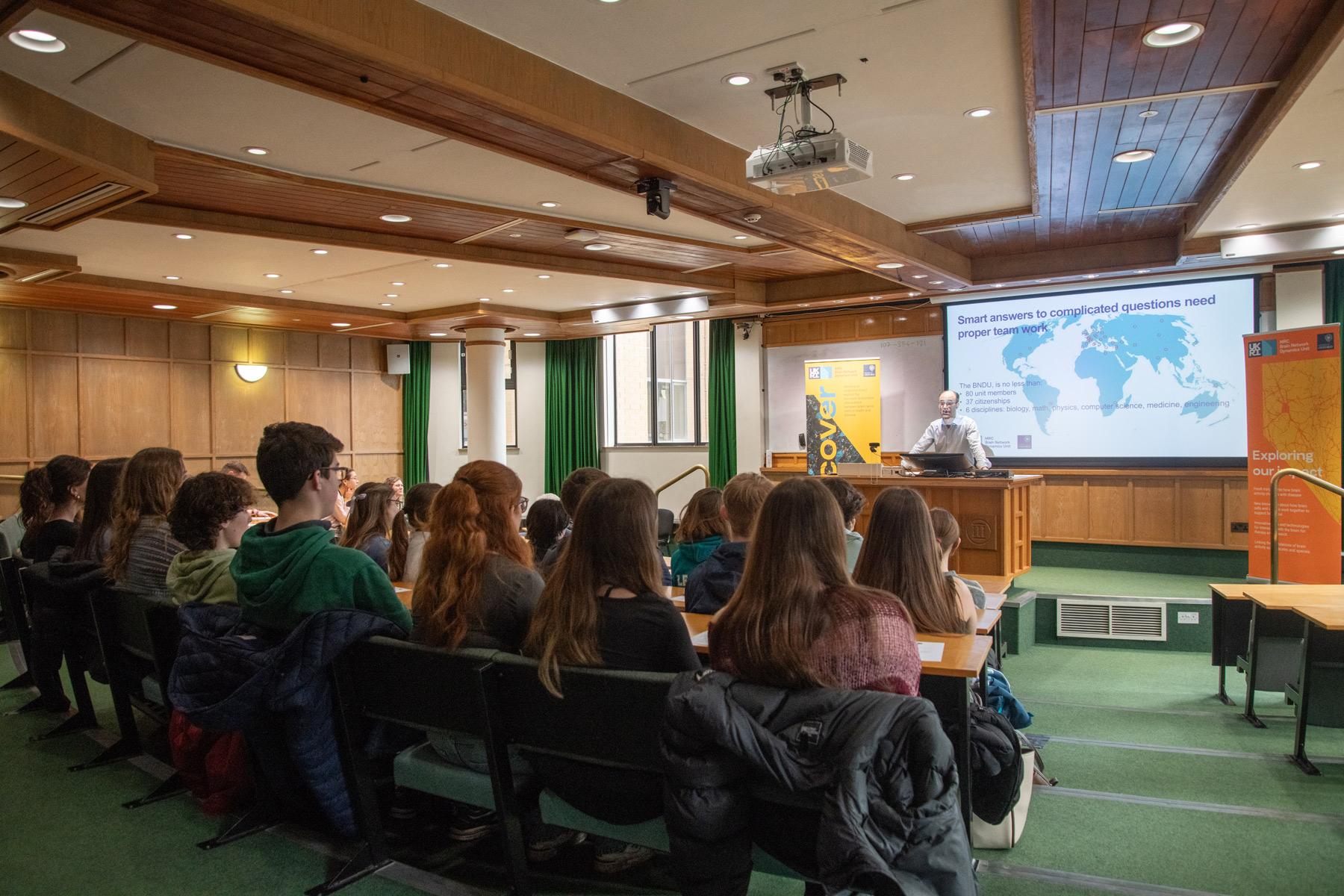
Unit Group Leader David Dupret welcomes visiting school pupils to the Unit.
Unit early-career researcher Katerina Panti talks demonstrates research tools in conversation with members of the Unit’s Patient and Public Advisory Group.
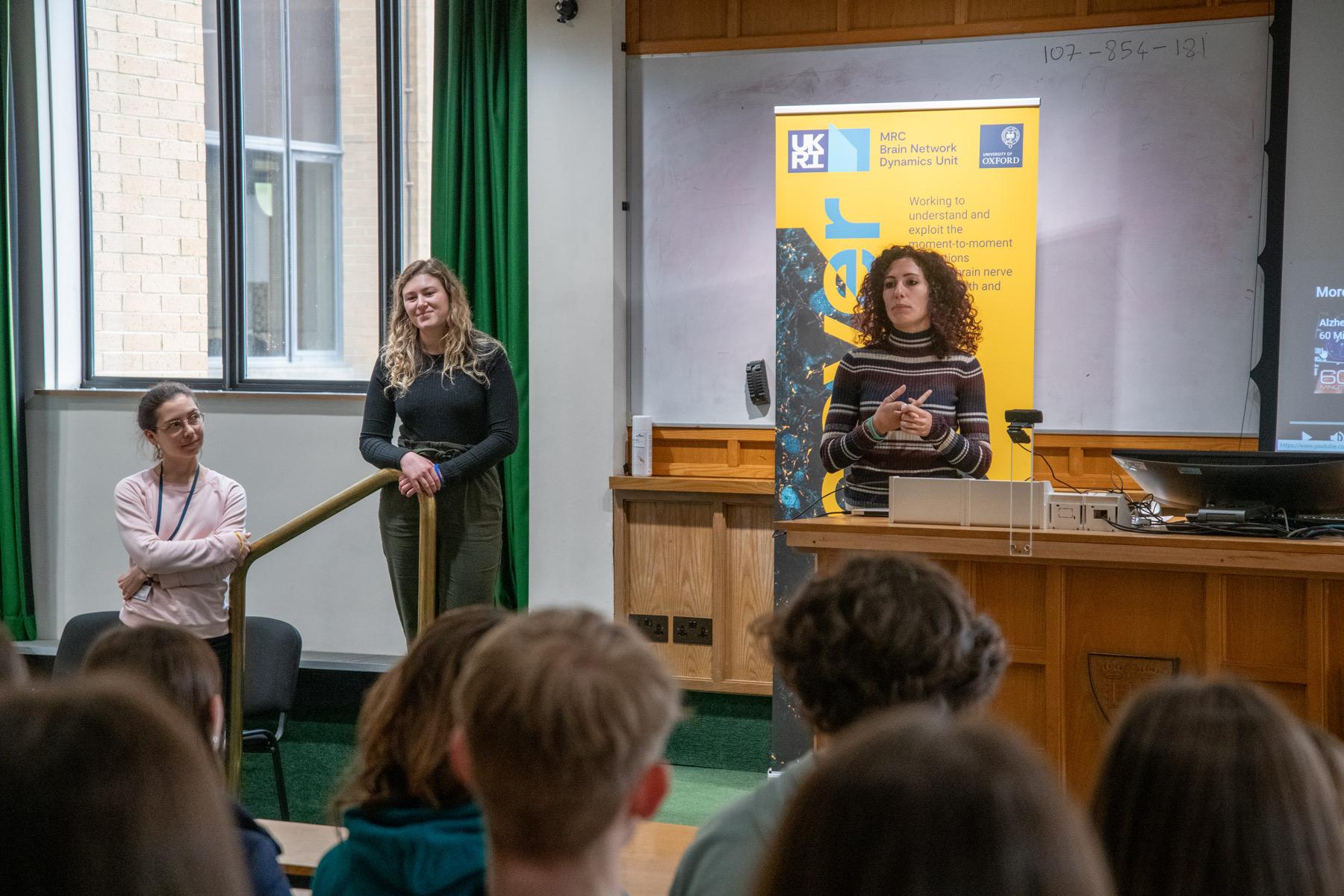
Unit researchers Melissa Serrano, Mathilde Guillaumin and Jessica Myatt talk to visiting school pupils about careers in STEM.
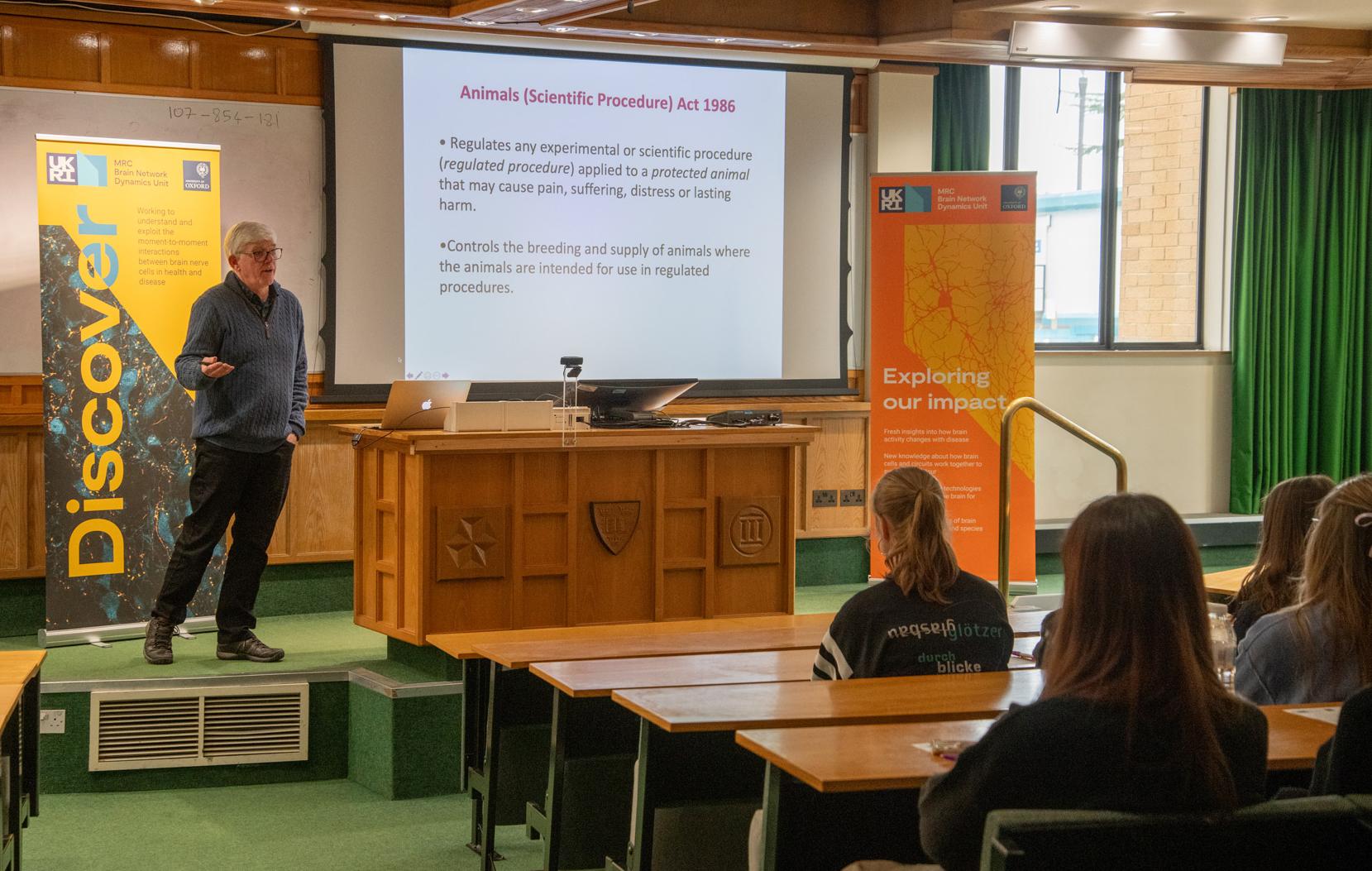
Associate Unit Member Paul Bolam talks to visiting school pupils about the use of animals in research.